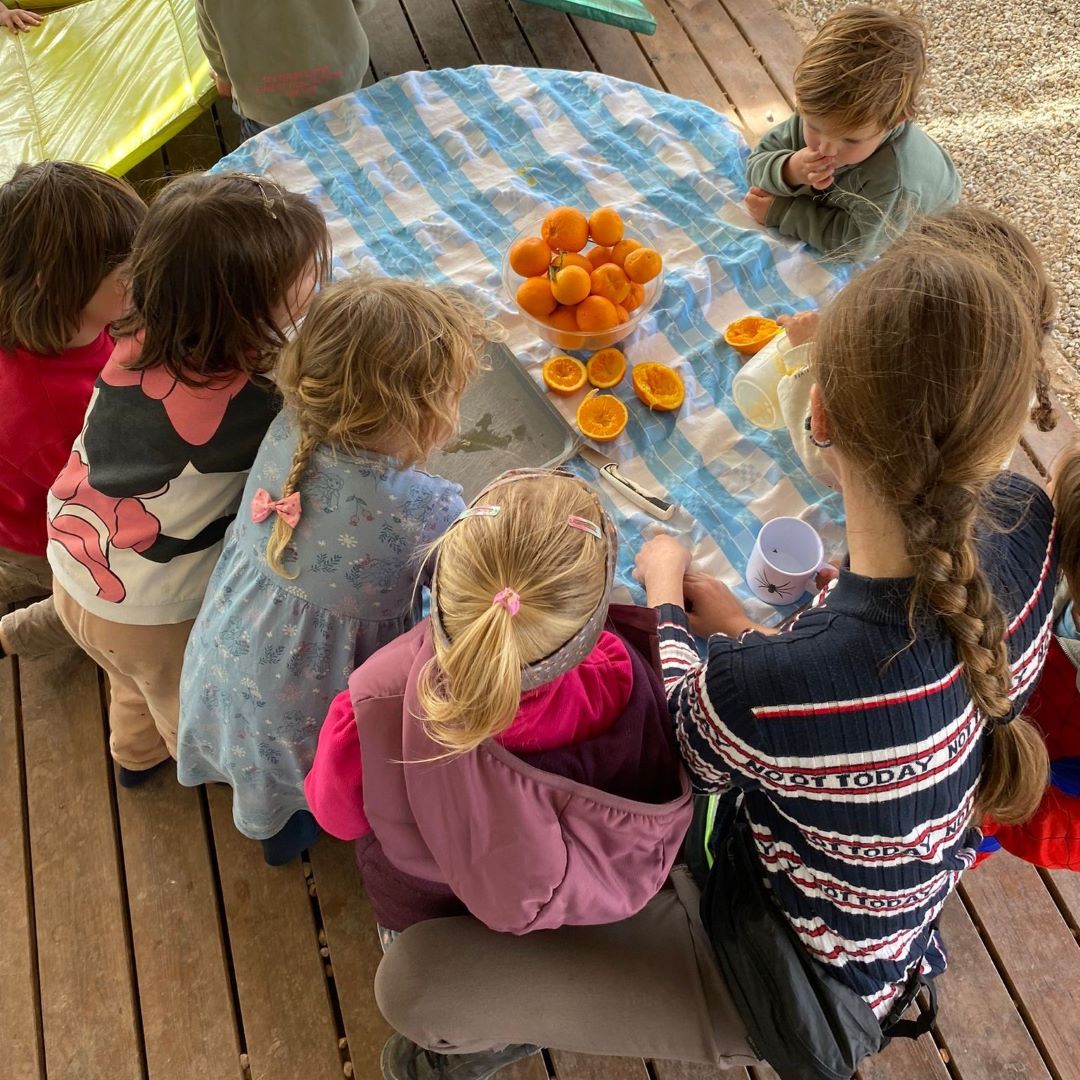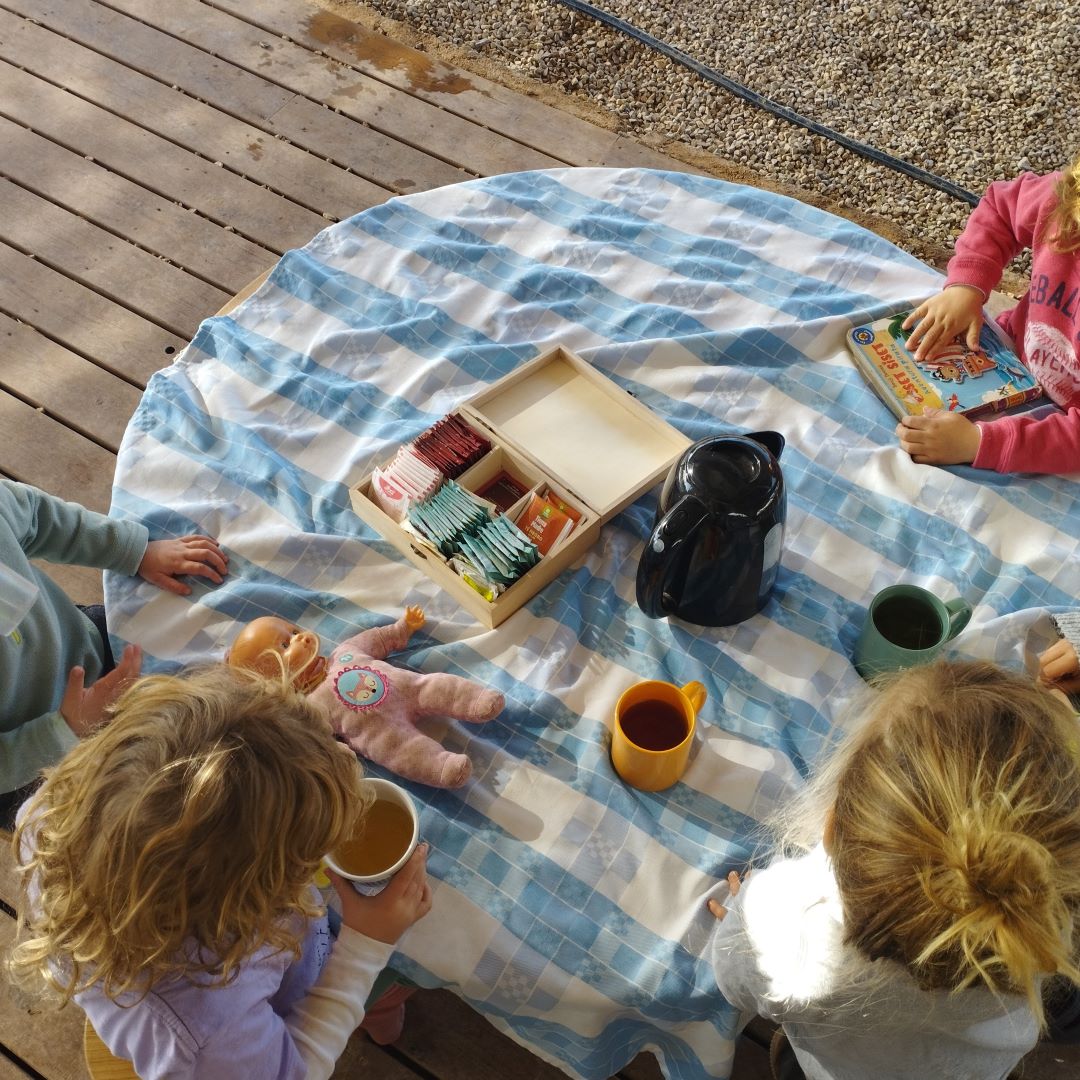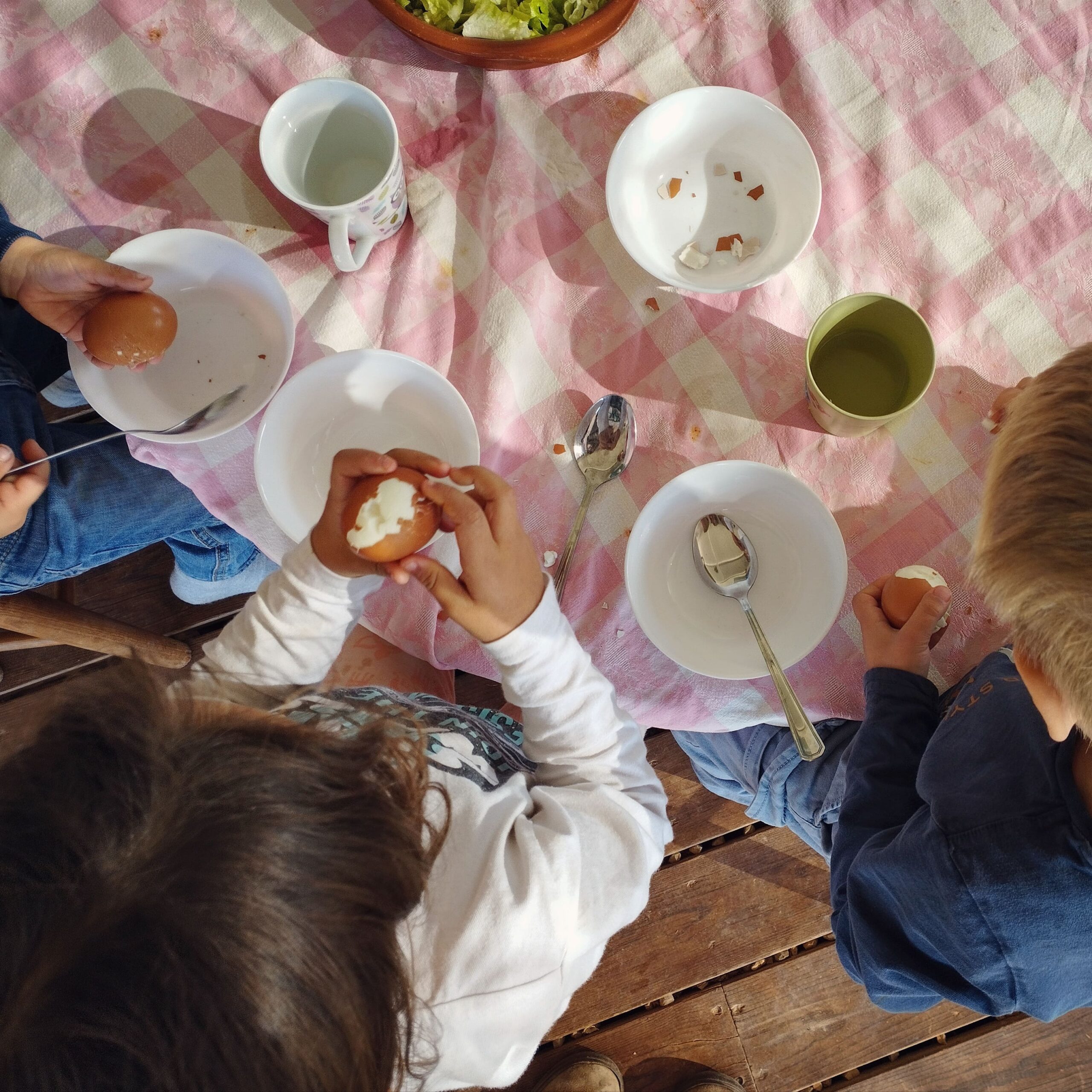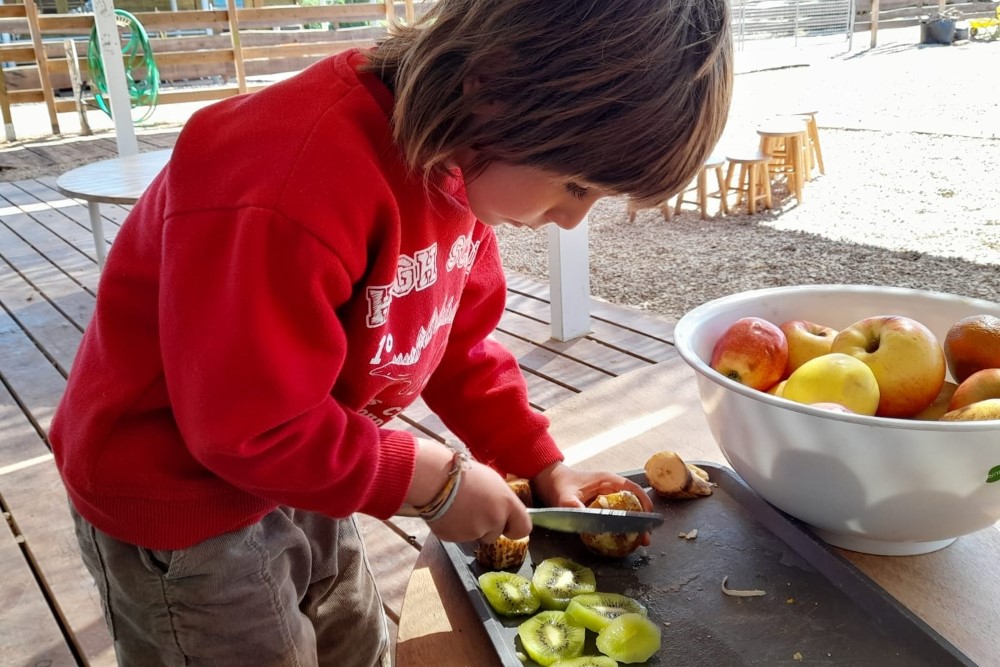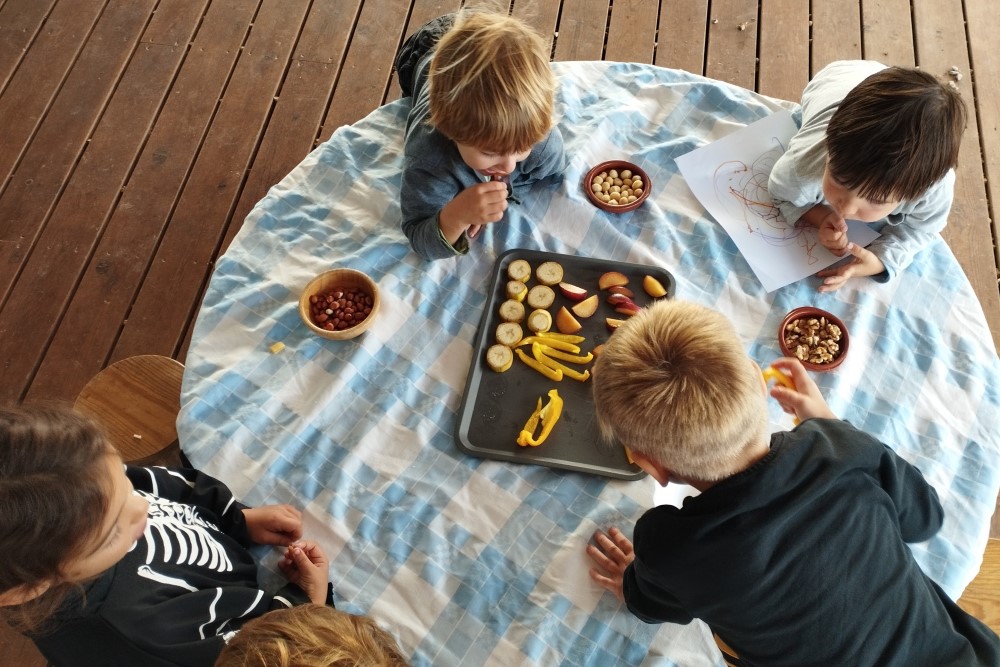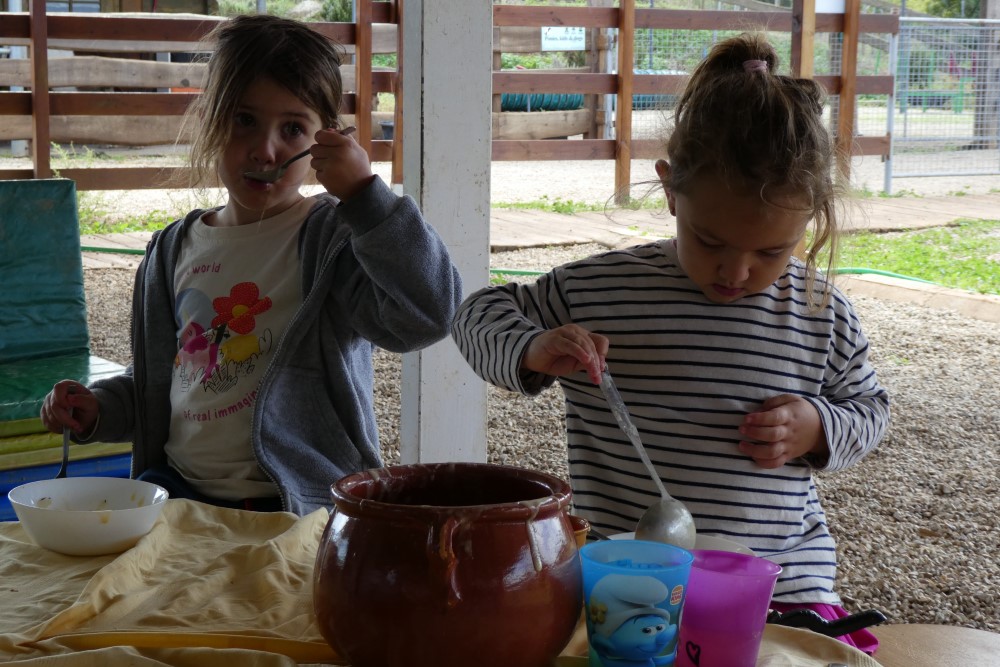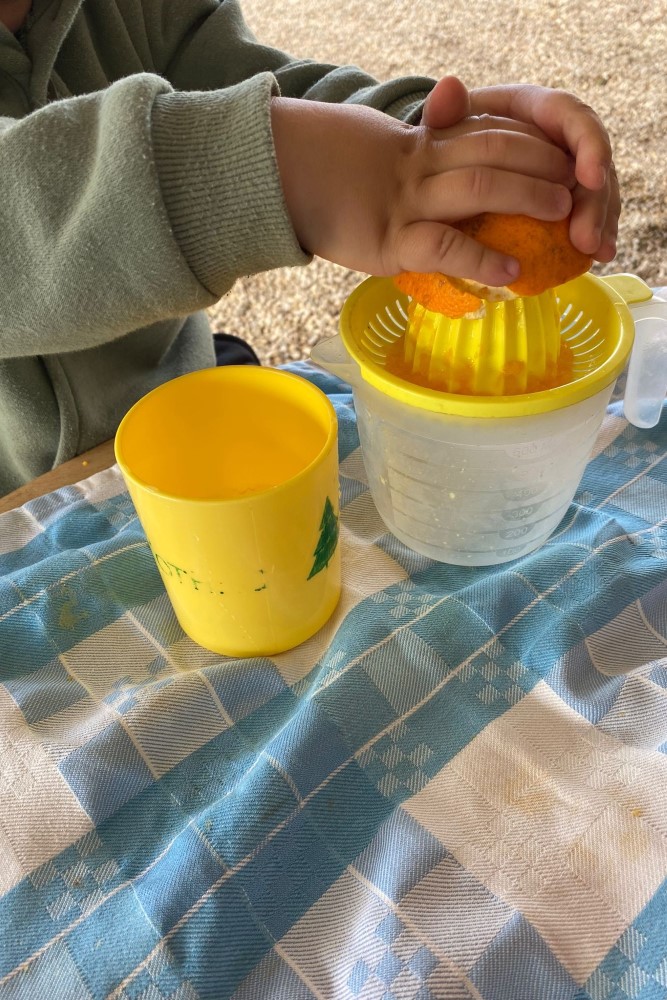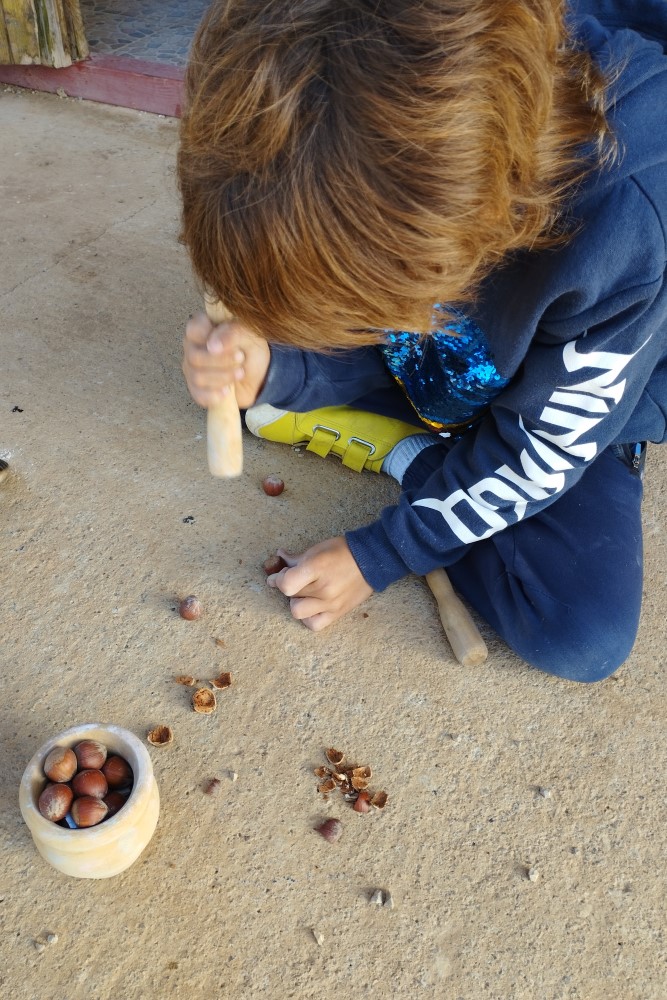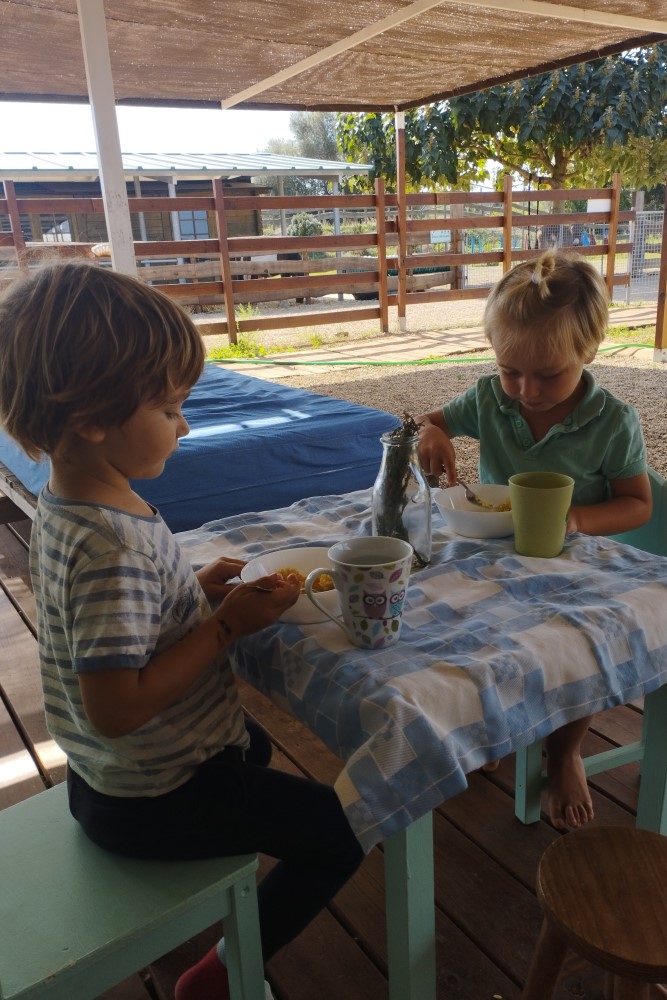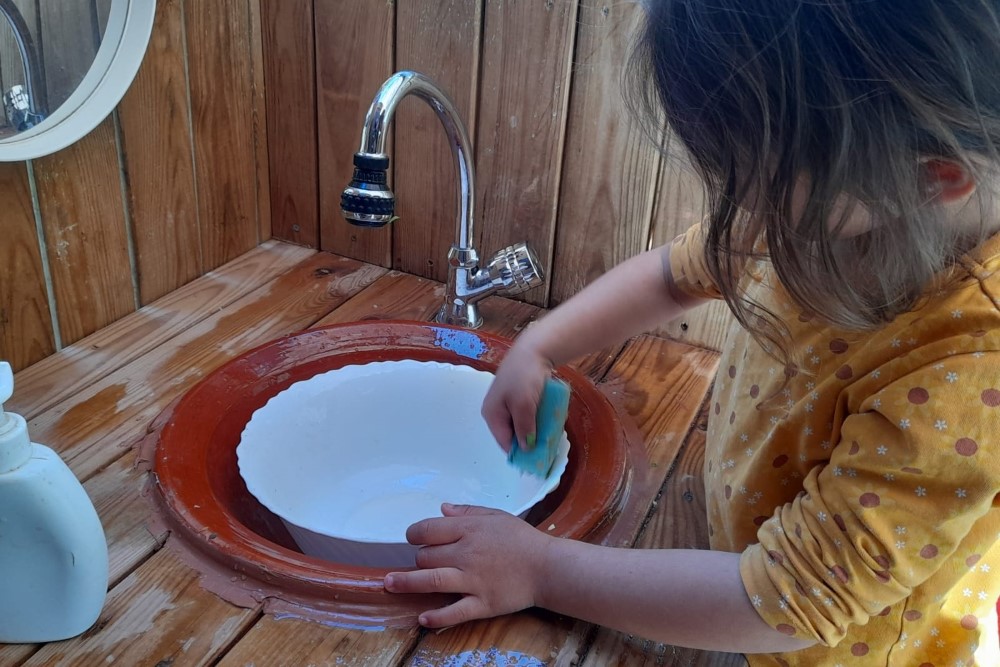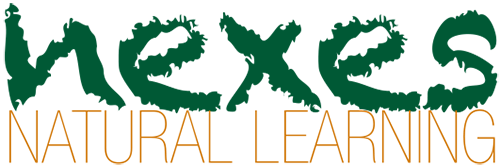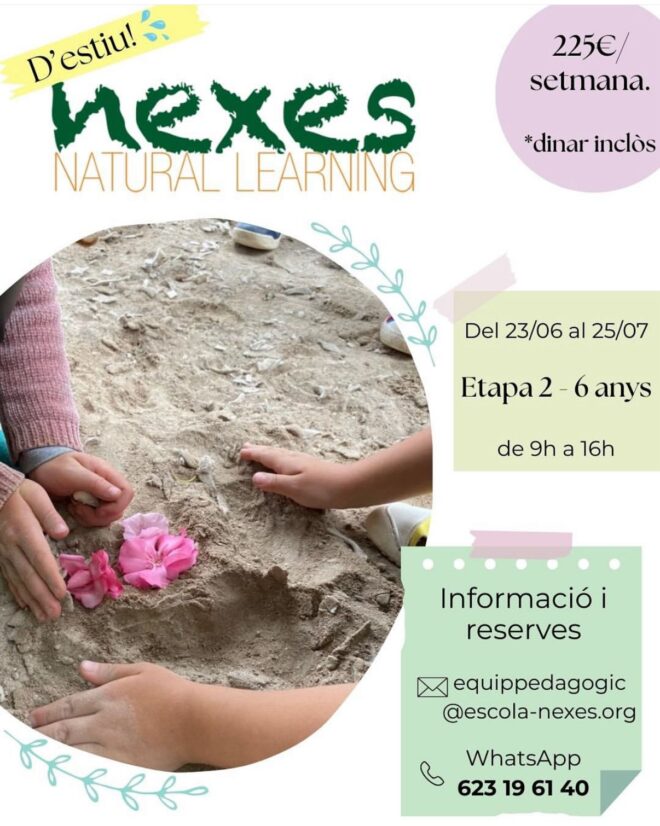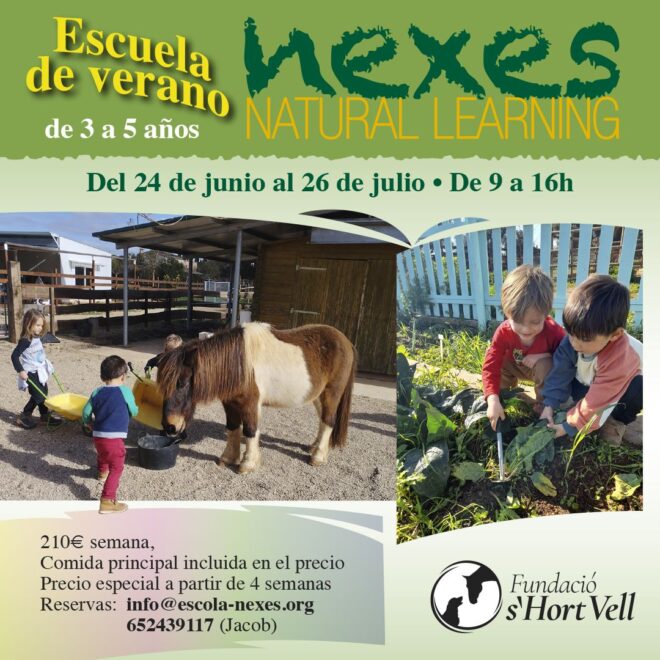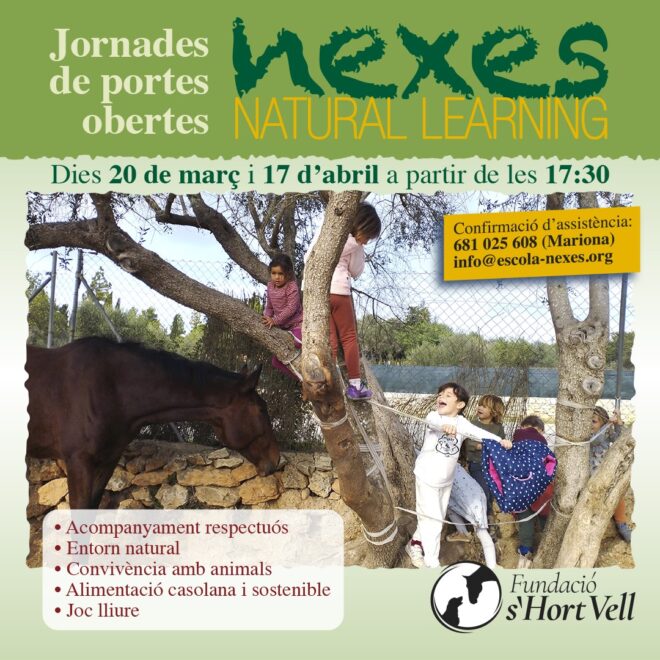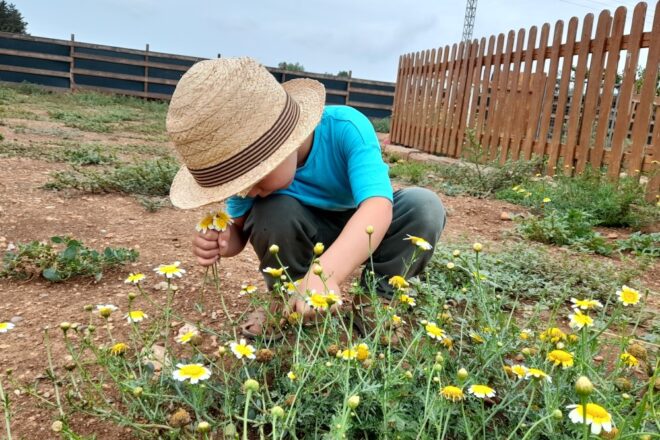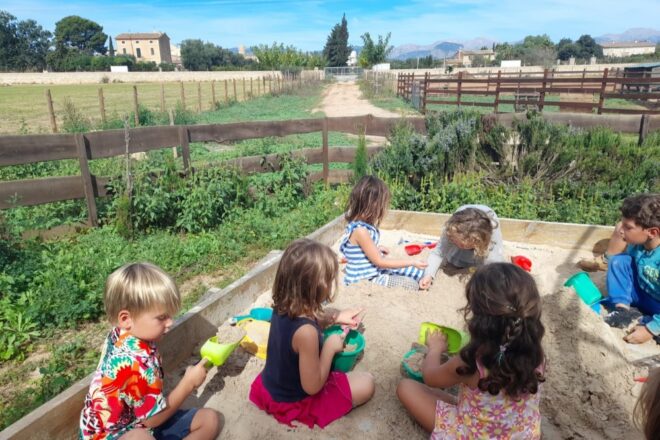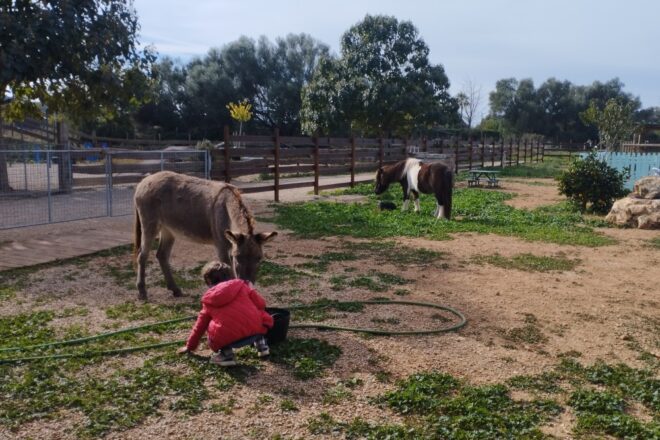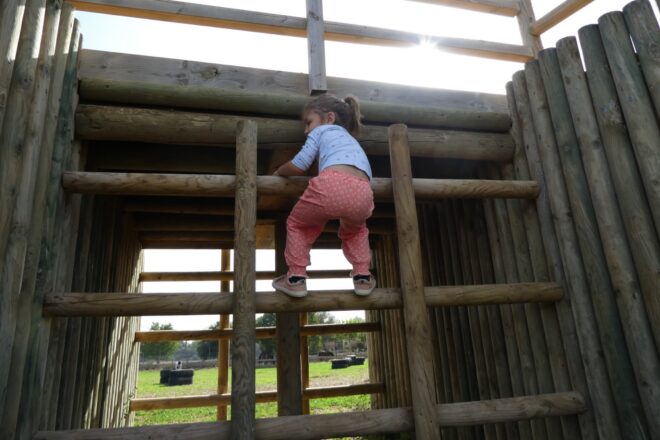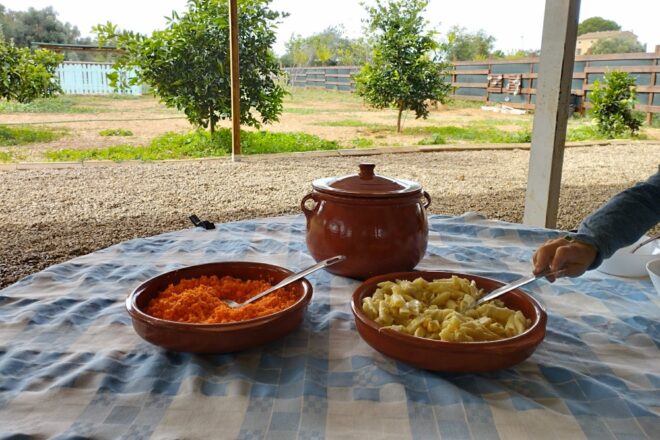Summertime 2024
.
Reception and familiarisation
The house of the children
Open days 2024
Respectful accompaniment
At Nexes we allow and accept all children’s feelings and emotions, both pleasant and unpleasant, so we also accompany them. Their function is to communicate something that needs to be attended to. The expression of these emotions, often in the form of laughter, crying, screaming, shouting, tantrums, etc., in a safe environment and accompanied by adults who are present and prepared, is essential for the full development of the child; it is necessary for these emotions to be dealt with in a healthy way.
The presence of the adults who accompany the children’s learning processes is a key part of the process. Trusting in children’s potential and with an attentive and loving view, far from trying to avoid, distract or hide children’s emotions, they give them a place, validate them, allow their expression in a safe environment, put words to what is happening and pay special attention to their body reactions.
It is from such accompaniment that secure attachments are created. These give children the confidence to investigate their environment and lay the foundations for their development.
So that all the above can take place in harmony, we work with small groups of a maximum of 8 children per guide.
Natural environment
Living in nature offers us infinite possibilities. It guides us to become aware of the passage of time, cyclical processes, slow rhythms, structures, silence, sounds, death, birth, and a long list of life experiences. It connects children with their most intimate needs, offering them the appropriate learning to regulate them when they are feeling them in their bodies.
Feeling the weather, observing the seasons, knowing the phases of the moon, picking the fruits of the season, touching the elements of the earth, smelling the plants, listening to birds sing. We continuously learn how the world works from direct experience, we are aware of other forms of life and the different life processes, we understand that we are part of this natural cycle, that we belong to a larger system that has to be cared for and protected. With the initiative that characterises children and through real experience, they learn to learn, to be self-satisfied and to cultivate the illusion of discovering the world around them.
In recent years, the benefits of bringing children closer to nature have been documented in numerous scientific investigations, referring to:
- Creativity and cooperation through play
- Improvement of cognitive skills, observation, concentration, and attention
- Improved academic performance and self-discipline
- Encourages reasoning, critical thinking, decision making and conflict resolution
- Encourages movement, psychomotor development, and body awareness
- Benefits to the immune system
- Development of social and communication skills
- Growth in harmony, away from noise pollution and over-stimulating environments
What happens if the weather is bad?
In the reference space we have two covered porch structures, interior spaces designed so that different atmospheres can be created, always respecting the guidelines of the project. In the facilities of the Fundació S’HORT VELL there is also a covered infrastructure, available for multiple uses. Storms are exceptional on our island and dangerous weather is rare. However, we are always aware of forecasts and can offer alternatives in case of need.
Don’t forget that “there is no such thing as bad weather, only inappropriate clothing”. In other words, you need good equipment, and you need to be active. Appropriate clothing does not mean special clothing, but simply comfortable clothing adapted to the weather and always “available “. Layers are practical, as the child can regulate, according to his or her temperature, whether to take clothes off or put them on.
Photo Gallery
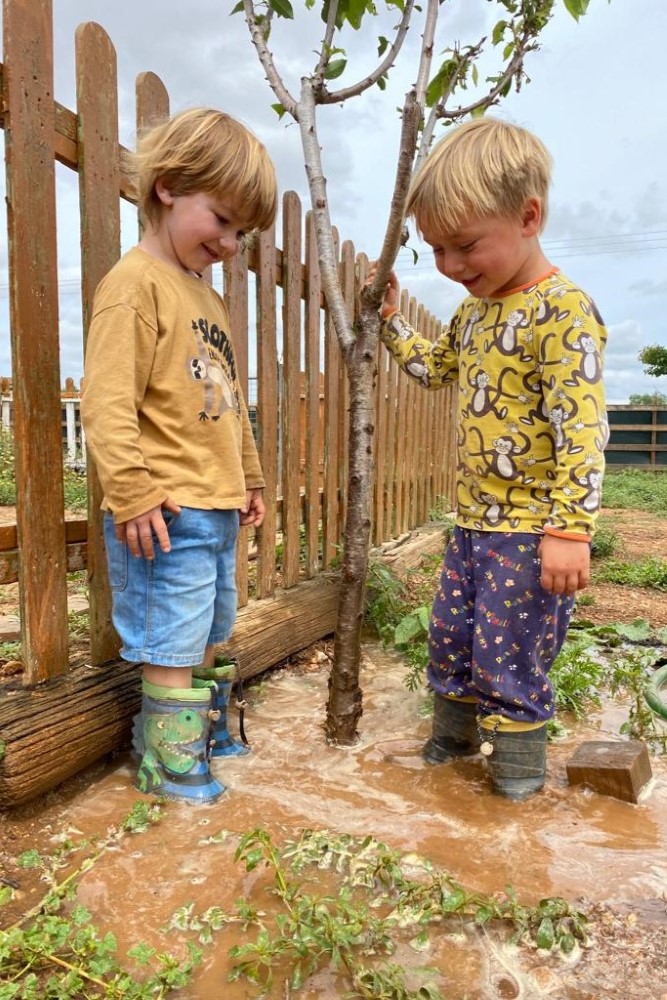
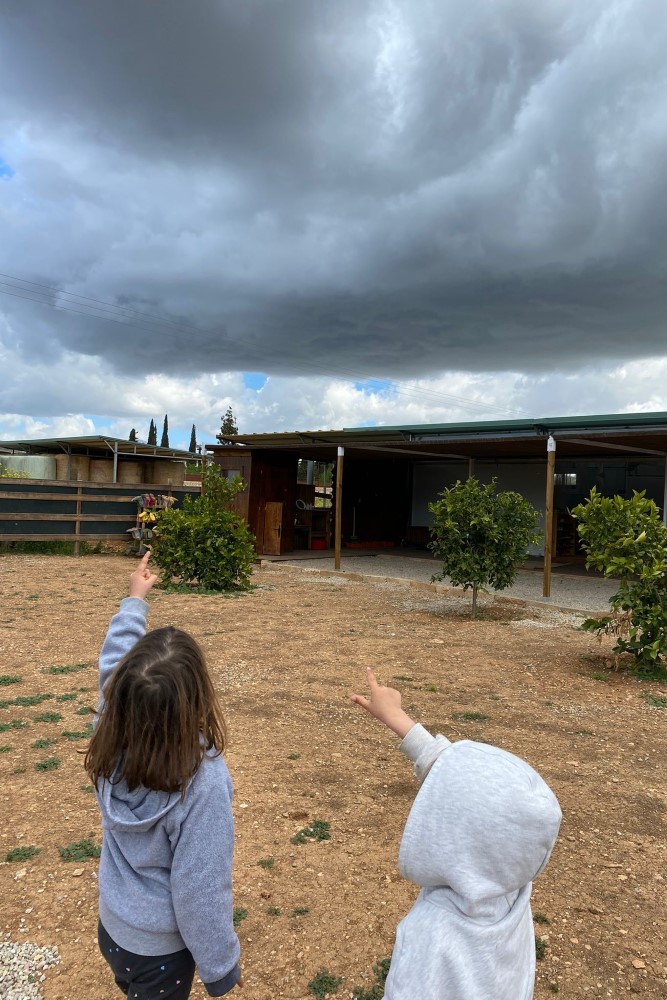
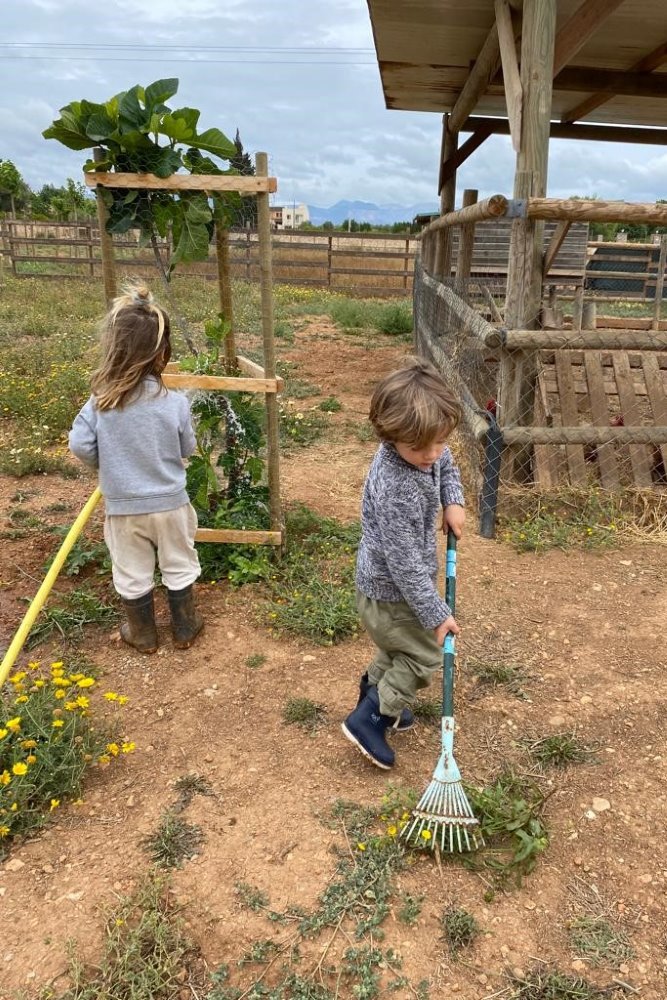
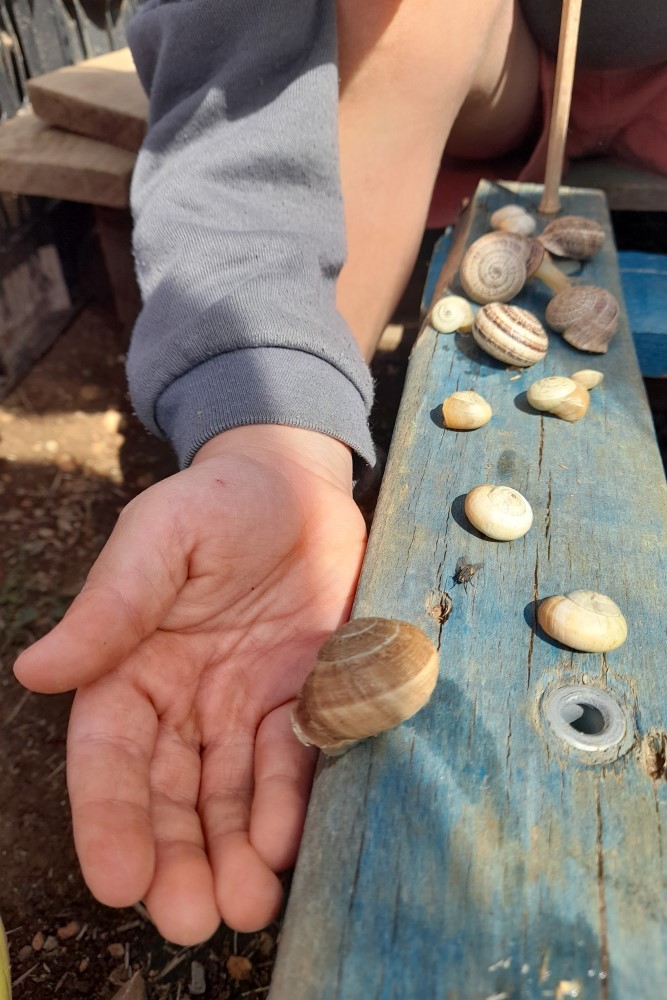
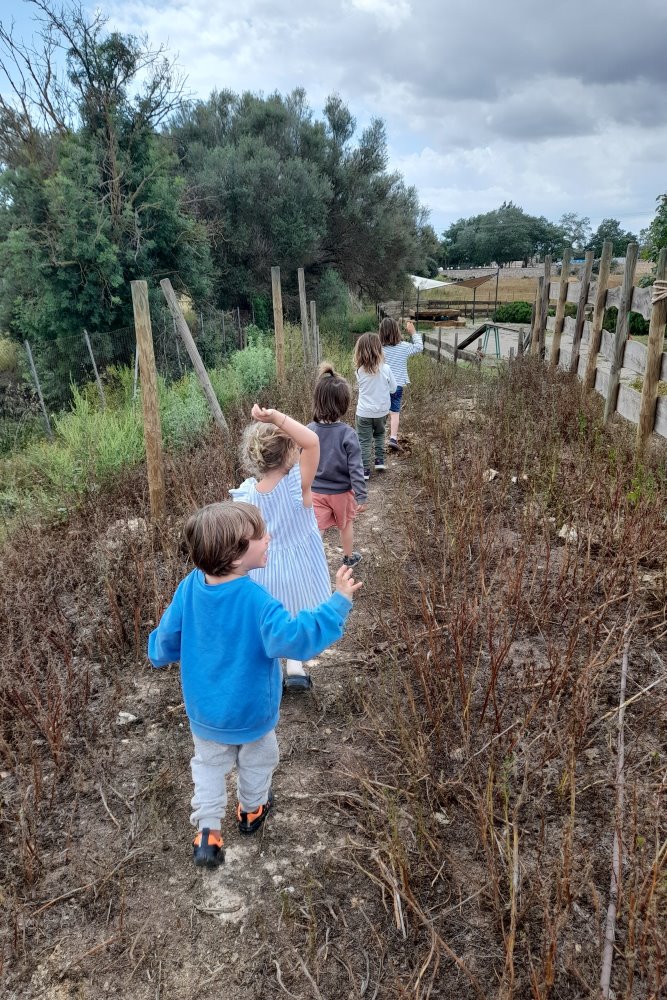
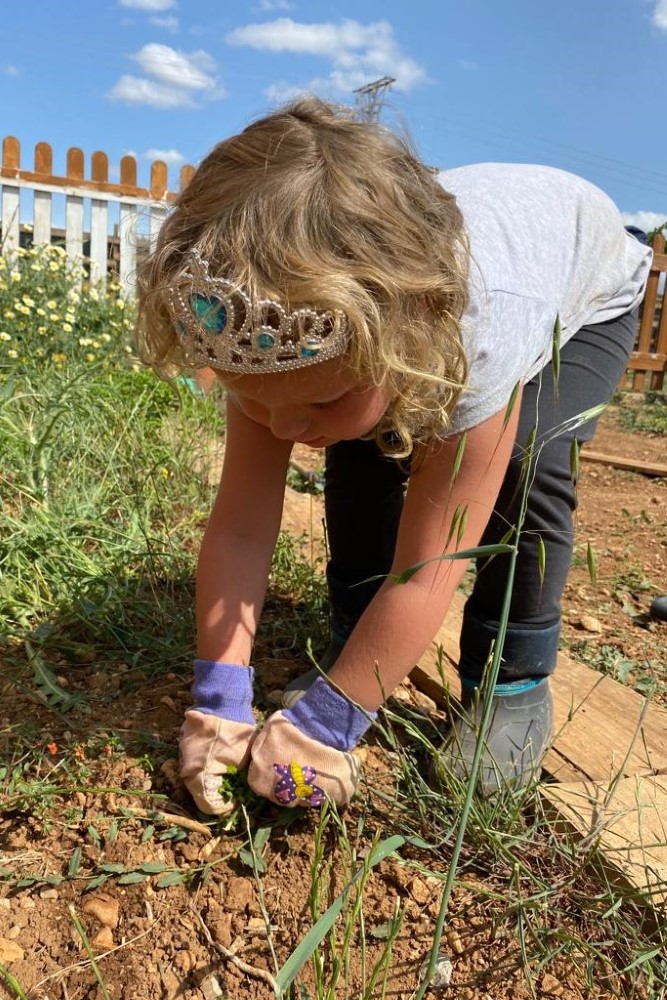
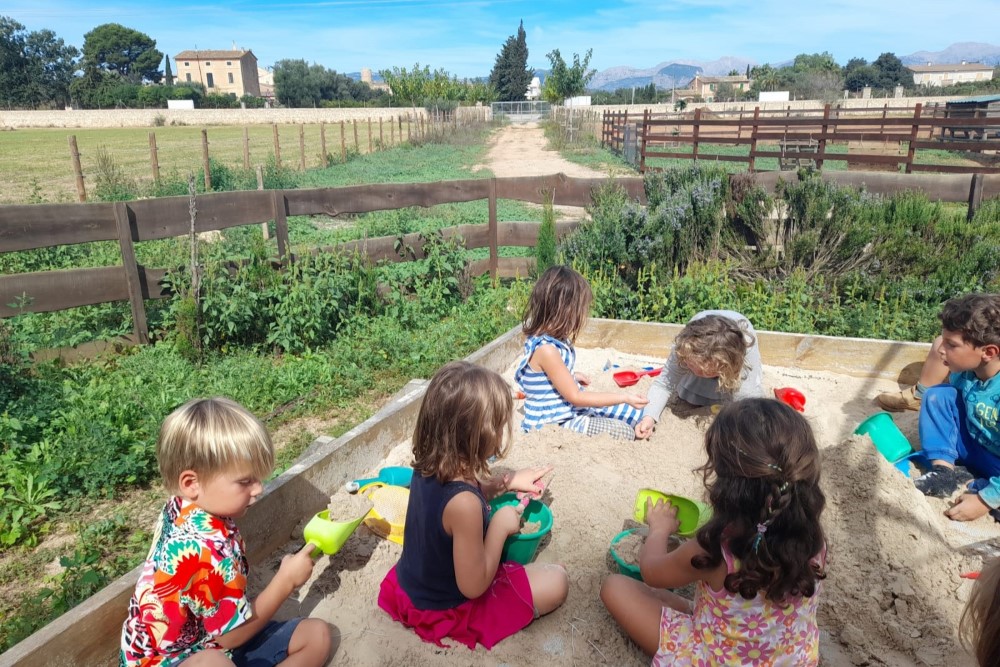
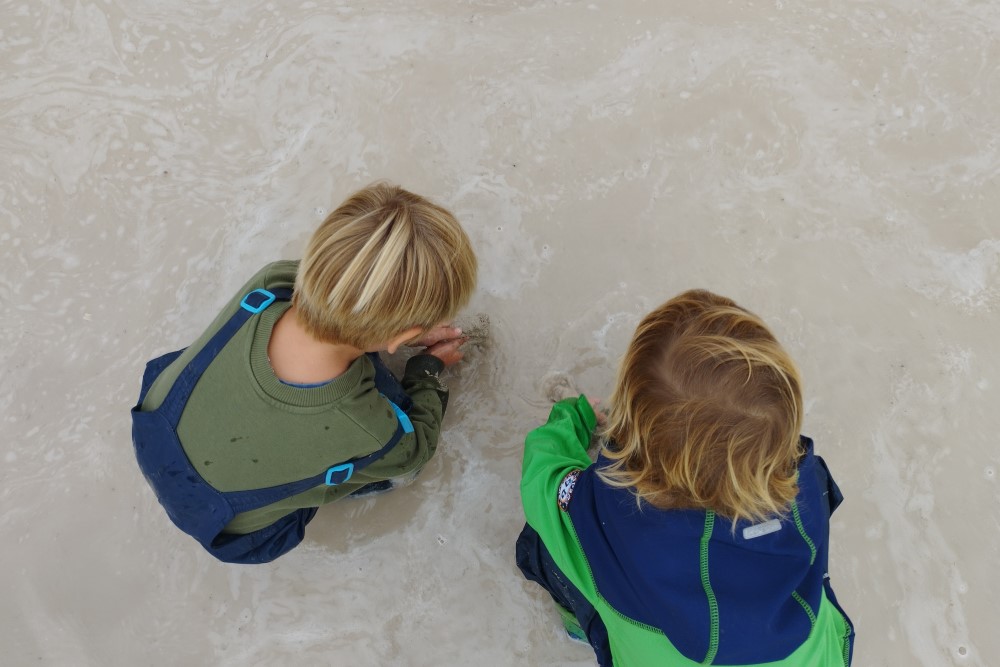
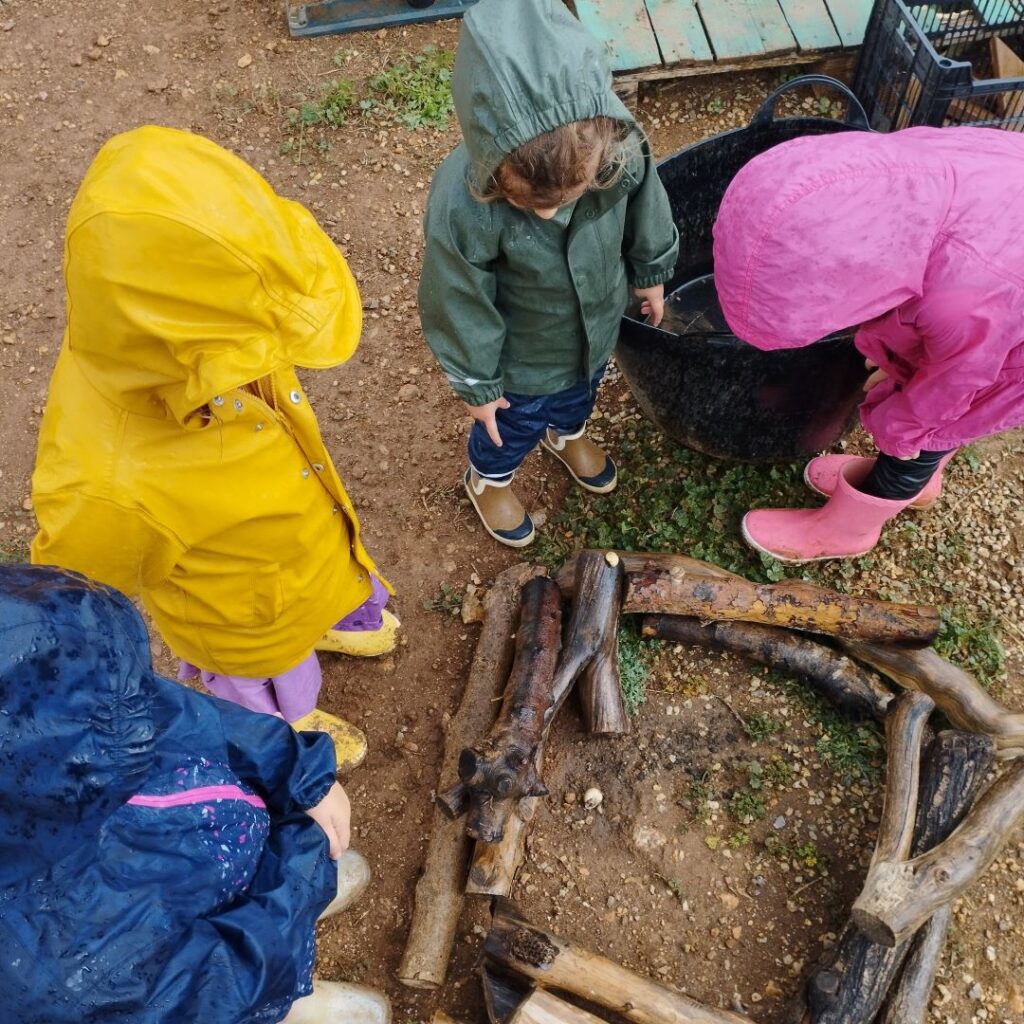
Living with animals
Nexes is a space cohabited by animals. In our space we have ponies, a hen, chickens, fish, and hundreds of wonderful insects that we are committed to care for and protect. In addition, every week we are accompanied by some of the intervention dogs of the Fundació S’HORT VELL to go for a walk, do some activity or participate in the daily life at the ranch.
At S’Hort Vell live more than 60 horses, ponies, and foals, which are part of our daily life, as we see them and interact with them on the way to school, every time we go on an excursion outside our premises or when we find them free in the facilities. All the animals at S’Hort Vell are used to interacting with humans in educational and/or therapeutic contexts, so they are completely accustomed to our presence and interaction.
At school we see how animals can live in the present, in the here and now. They move according to their needs and affections. They are sensitive to our energy and emotional state, and their reactions provide us with information that allows us to reflect on how we approach them. They can communicate with us, as long as we can understand it.
To approach animals with respect and safety, we teach children to interpret the non-verbal signs that indicate that an animal is calm, stressed, afraid… They also learn to set limits when they do not want the animal’s proximity or consider it too invasive.
Through mutual knowledge, presence, physical contact… Children build up a bond with animals, which, without becoming their pets, can acquire a certain relevance in their emotional world. The bonding and care of these animals, together with living in a green environment, ensures that children develop a more holistic and sensitive view of the beings around them.
Photo Gallery
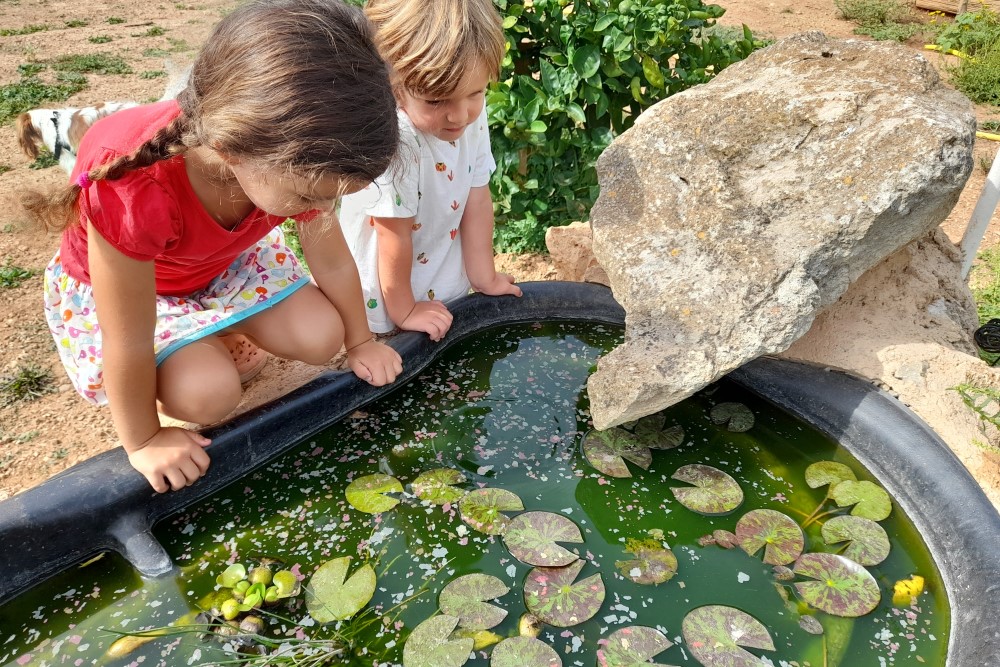
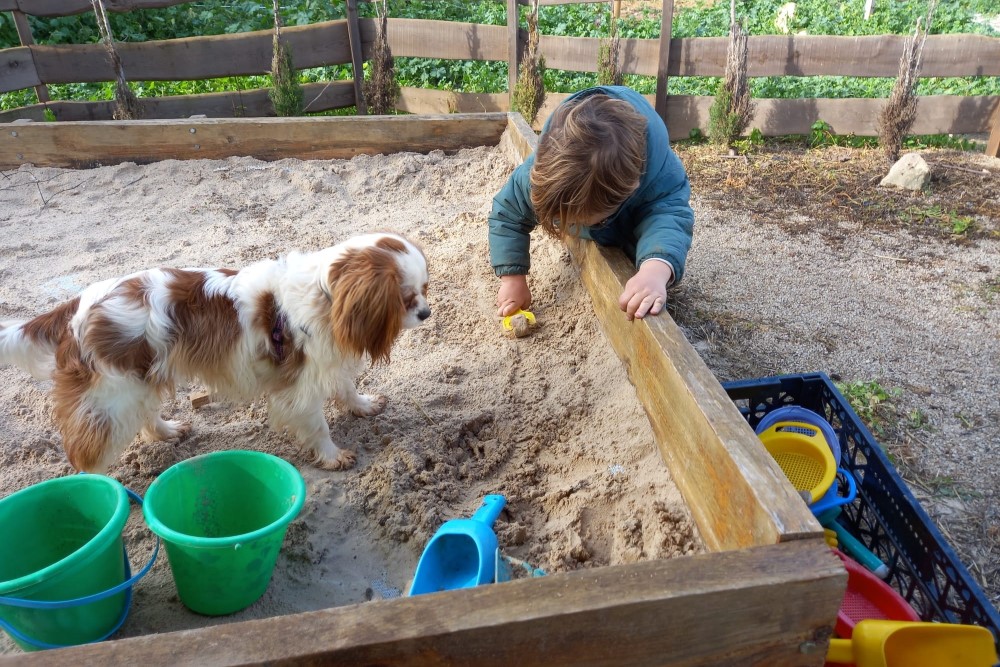
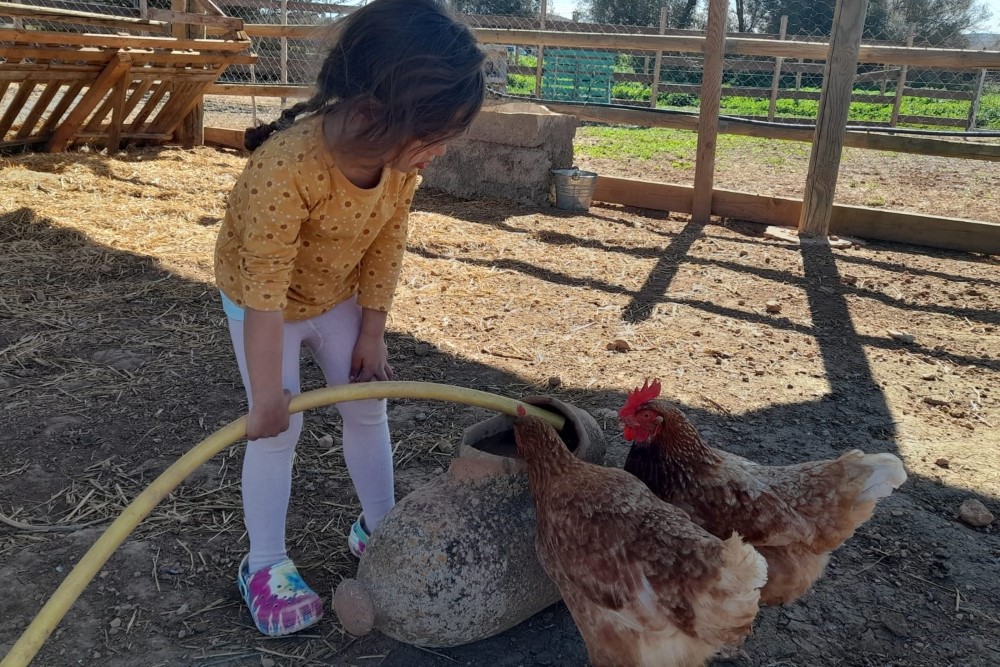
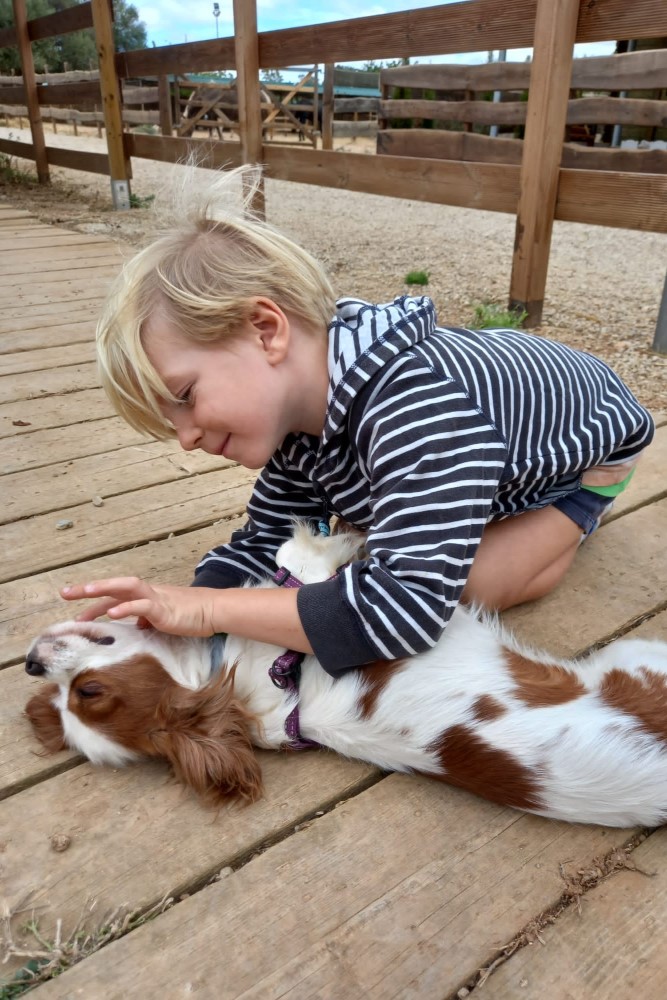
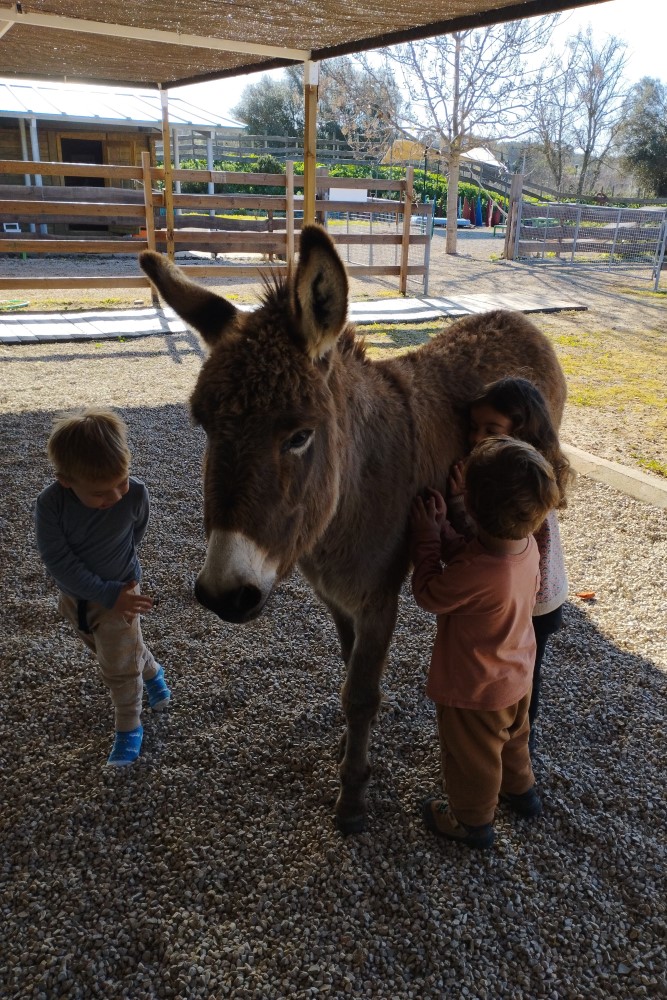
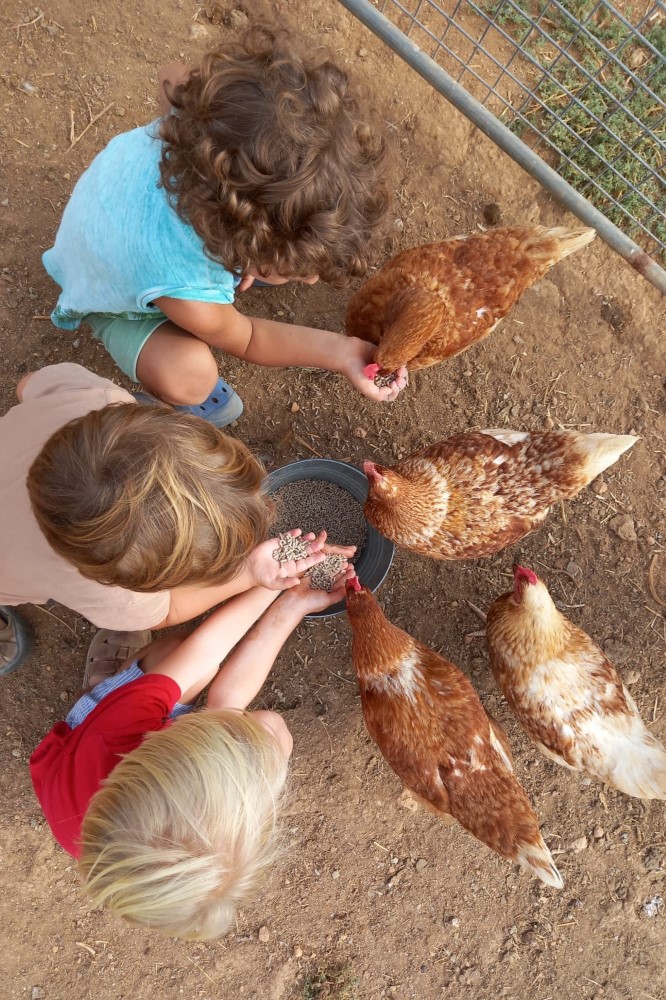
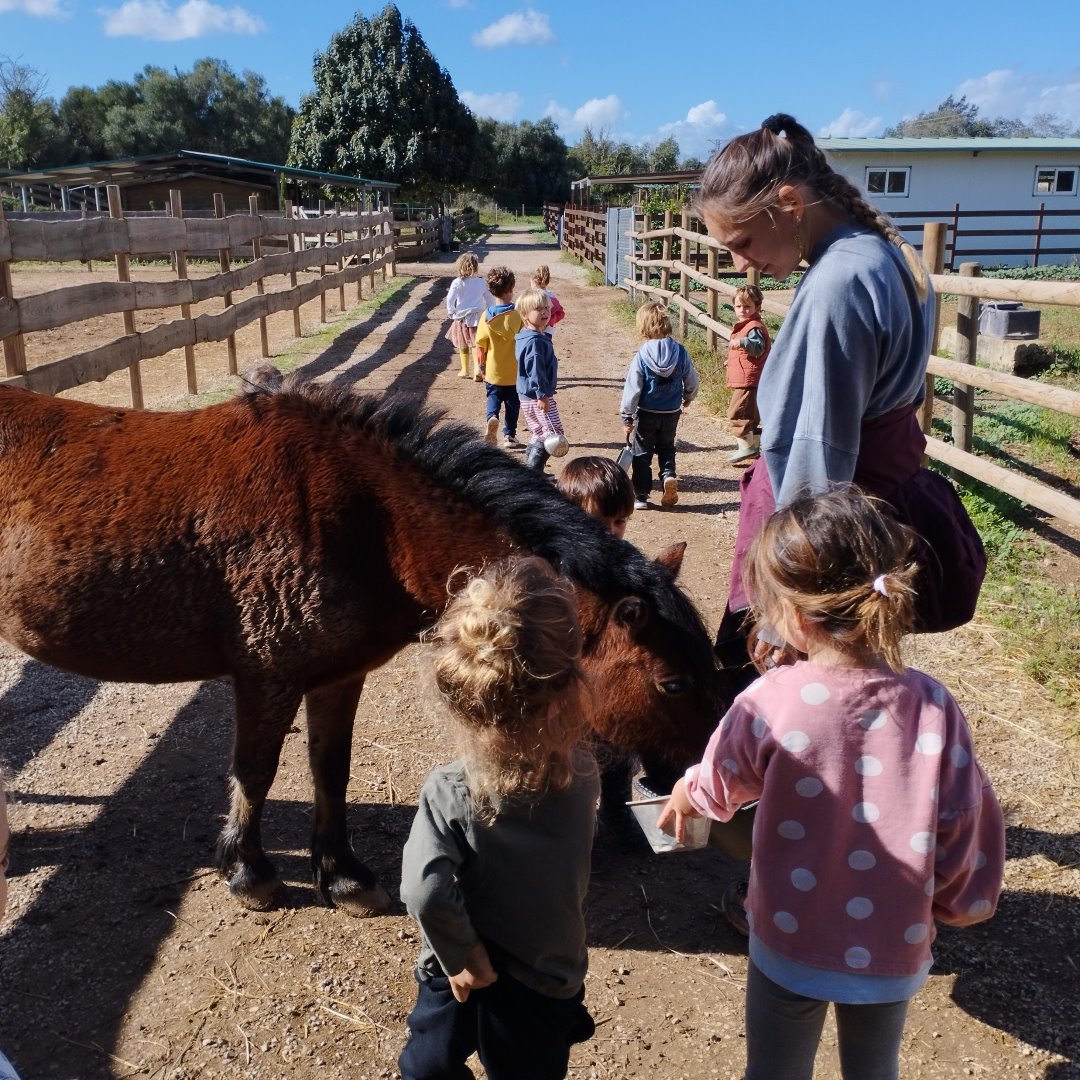
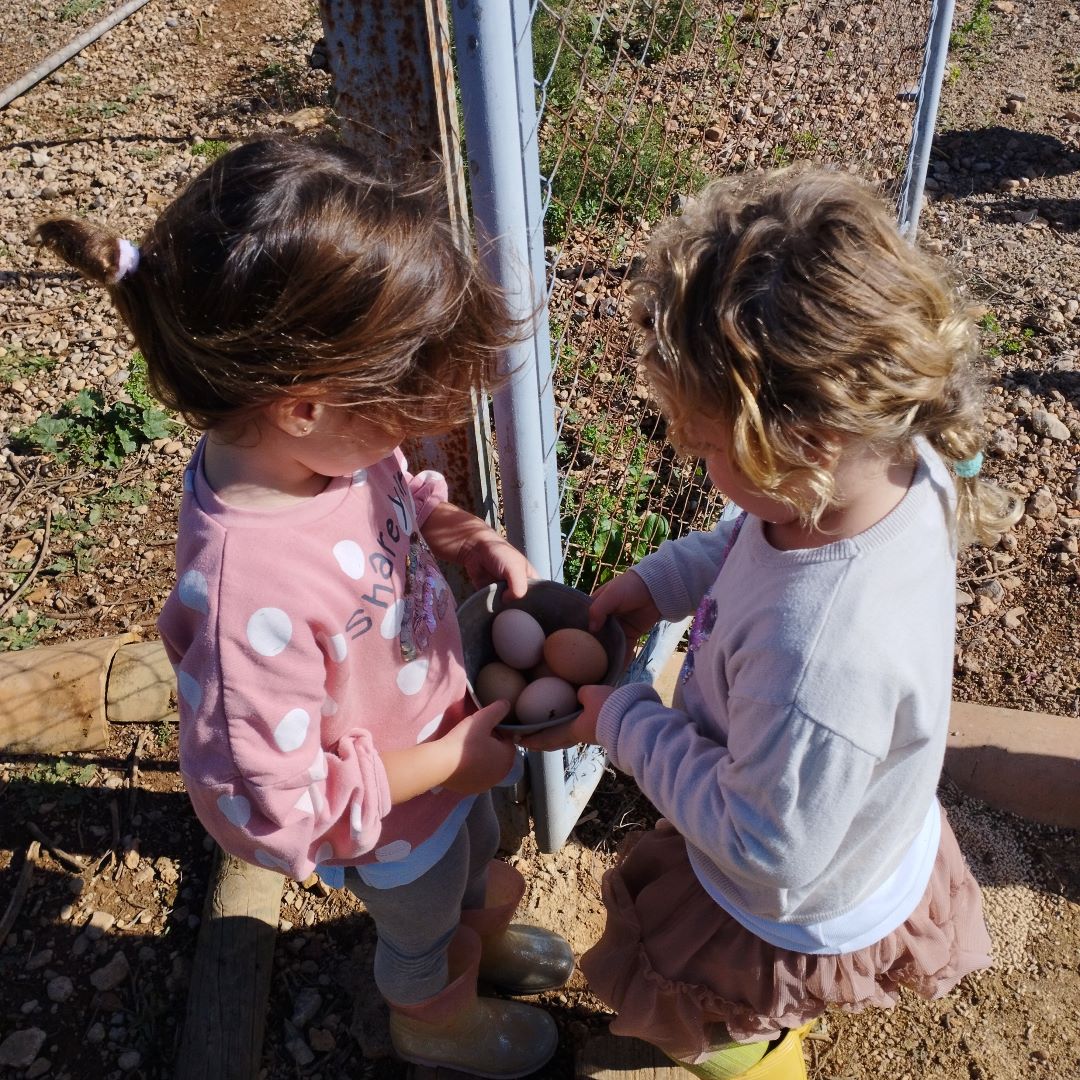
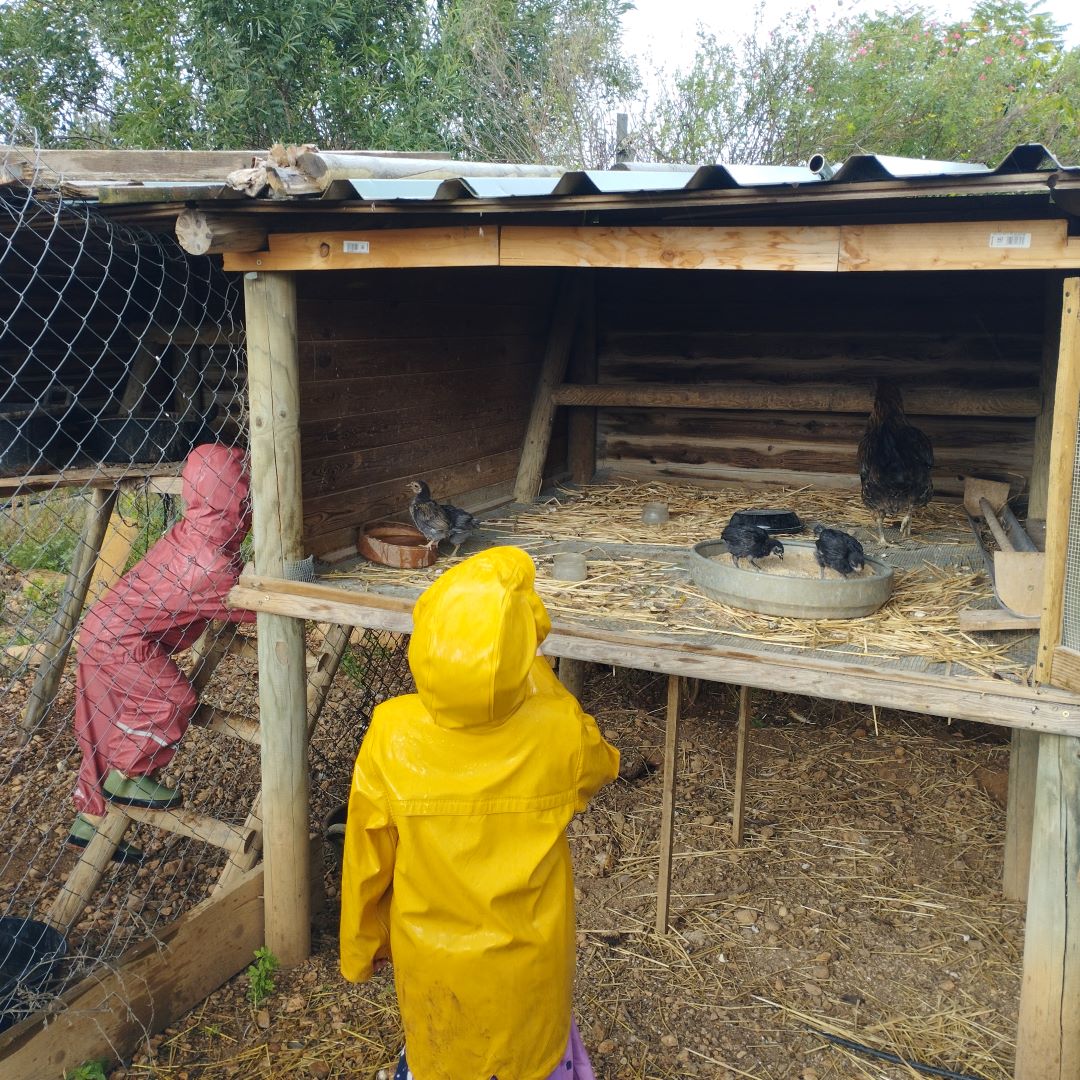
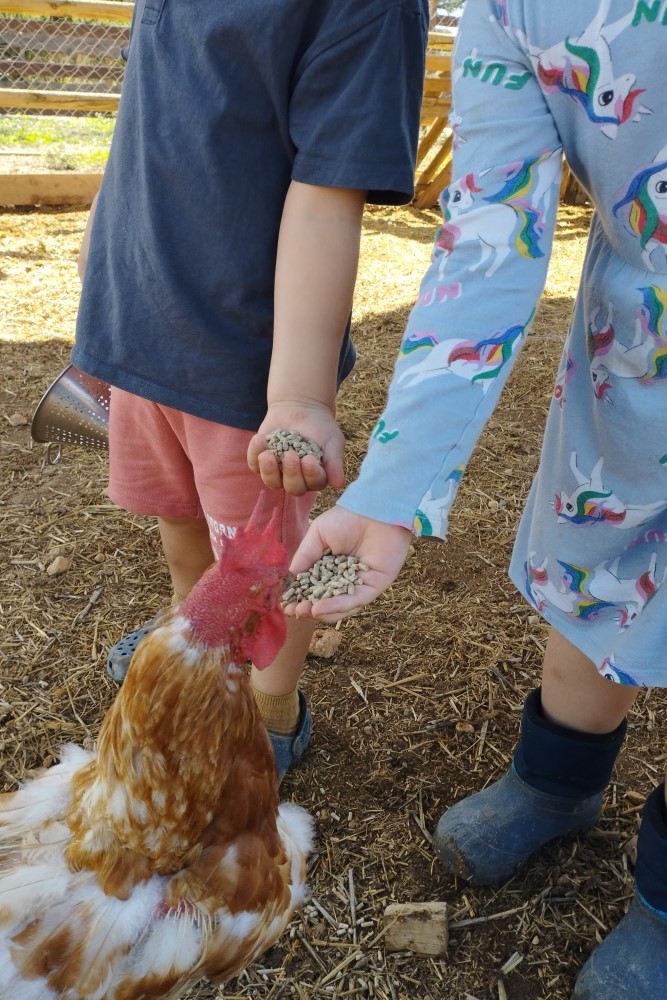
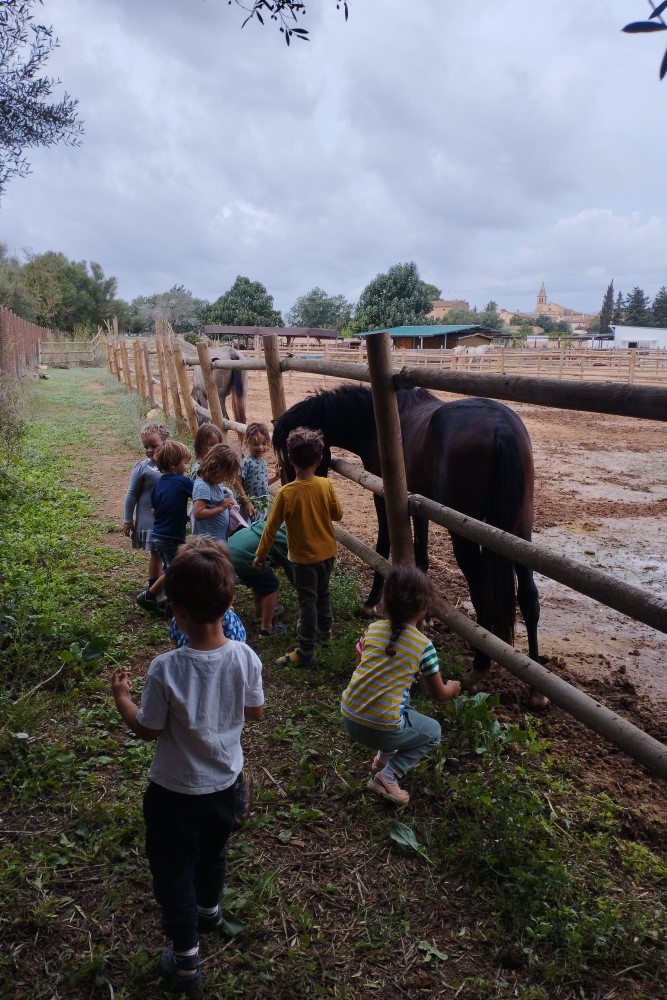
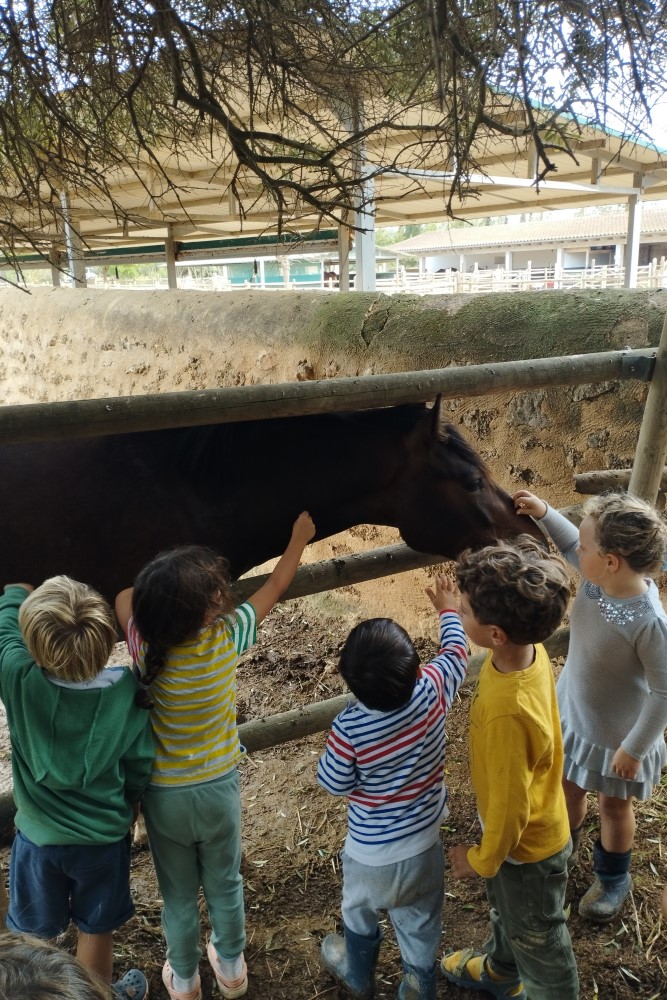
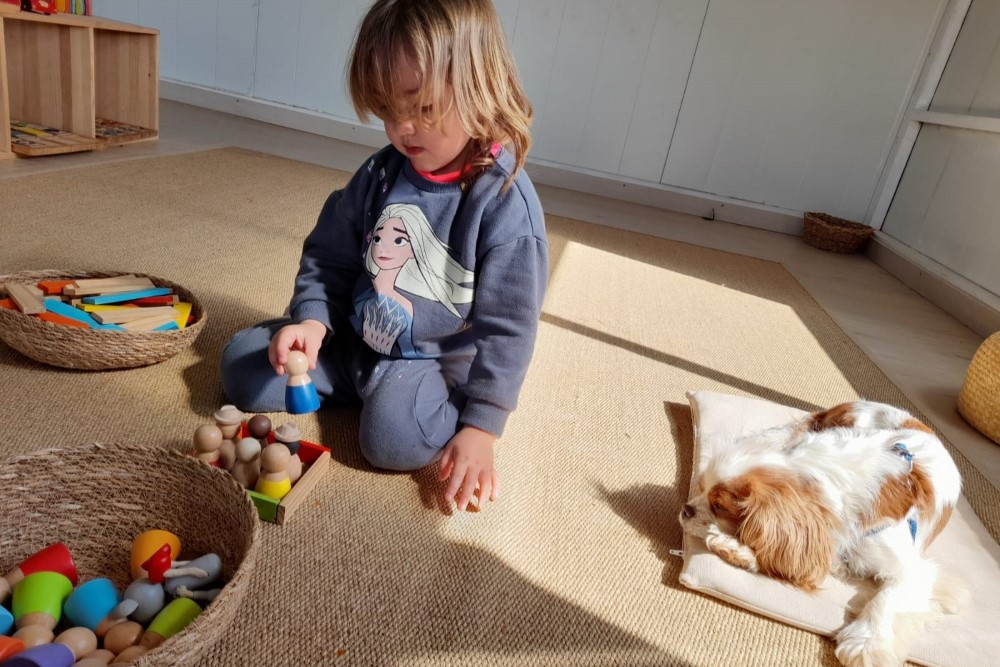
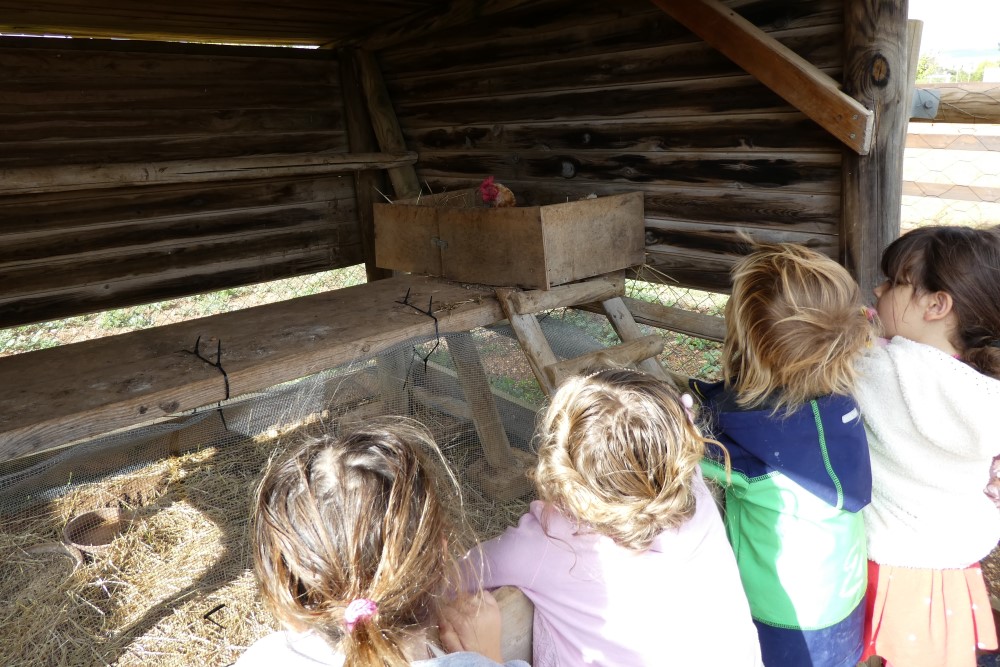
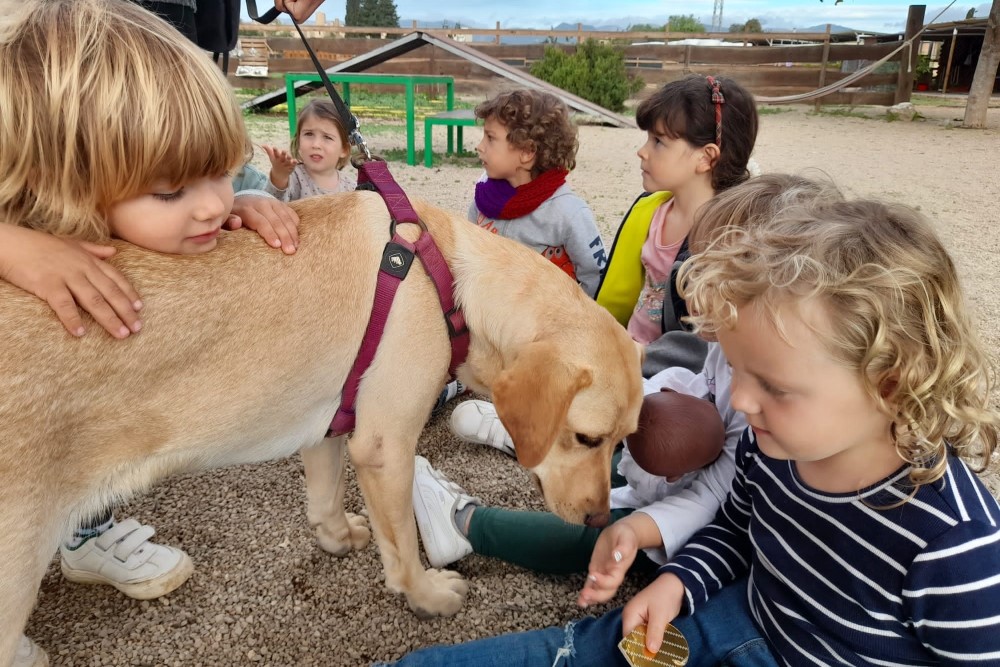
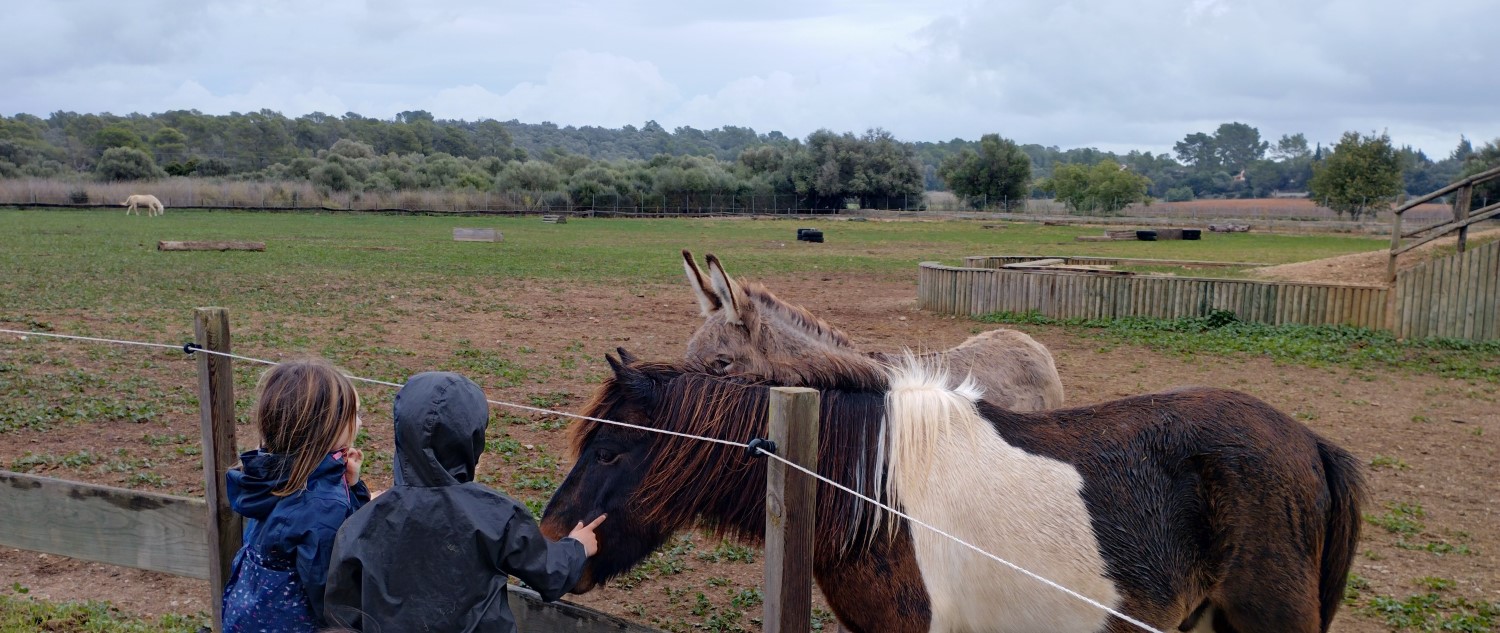
Free play
Recognised authors and referents in the field of education agree on the idea of letting the child play freely, far from excessive intervention and the offer of directed proposals. Among the needs to be satisfied for a full and healthy childhood, play is one of them. Children play out of need, to live; it is their occupation, the most important task at the stage of life in which they find themselves. The best thing an adult can do for a child is to give him/her time and space to be a child, time, and space to play.
Letting them develop from this freedom to play and experiment is to open the doors to learning.
At school we propose free play as a way of relating to the environment and, therefore, as an engine for learning. Generally, children at this stage do not set themselves a goal when they start to play. Play is not designed, it comes naturally and spontaneously in any place and in any culture in the world, it is an innate language of childhood that makes them acquire countless skills. To develop it, the child does not need stimulating toys, full of functionality and colour. The child is a natural player. In fact, the less a toy does, the more the child will do. Jean Piaget said that “children do not play to learn, but they learn because they play“.
At Nexes the play proposal is mostly presented through unstructured material and the opportunities provided by the environment: sticks, stones, leaves, fruits, trunks, pieces of wood, balls, flowers, cones, tools… The child has within his reach an immense source of what could be “toys” that encourage creativity, proactivity, and decision-making. The adults, meanwhile, observe the richness of their play processes and ensure that the spaces where they develop are safe and attractive, and that they have resources and materials appropriate for the age of the children we accompany.
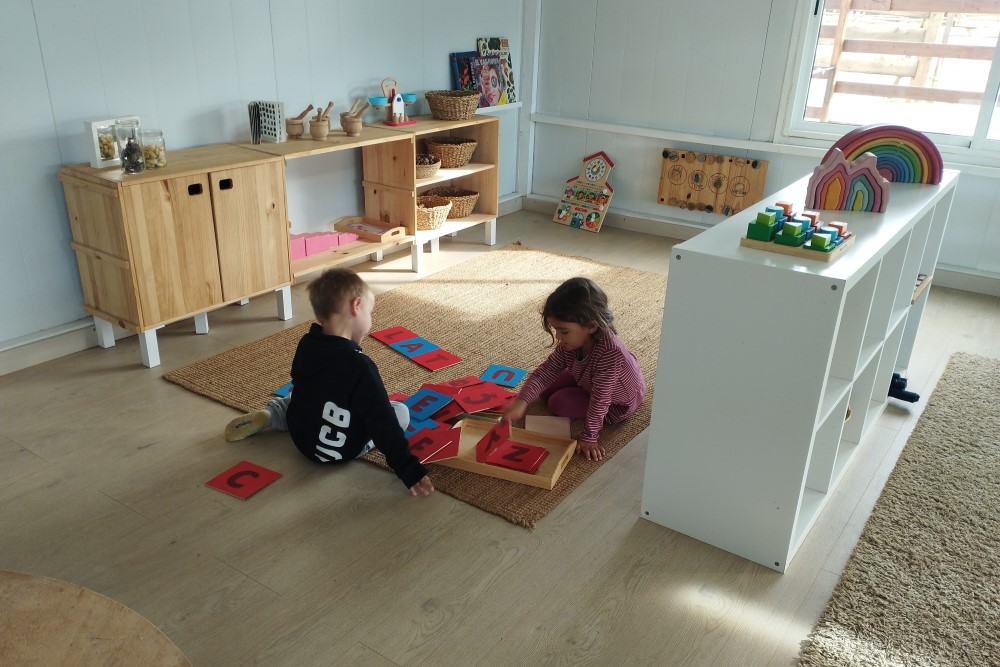
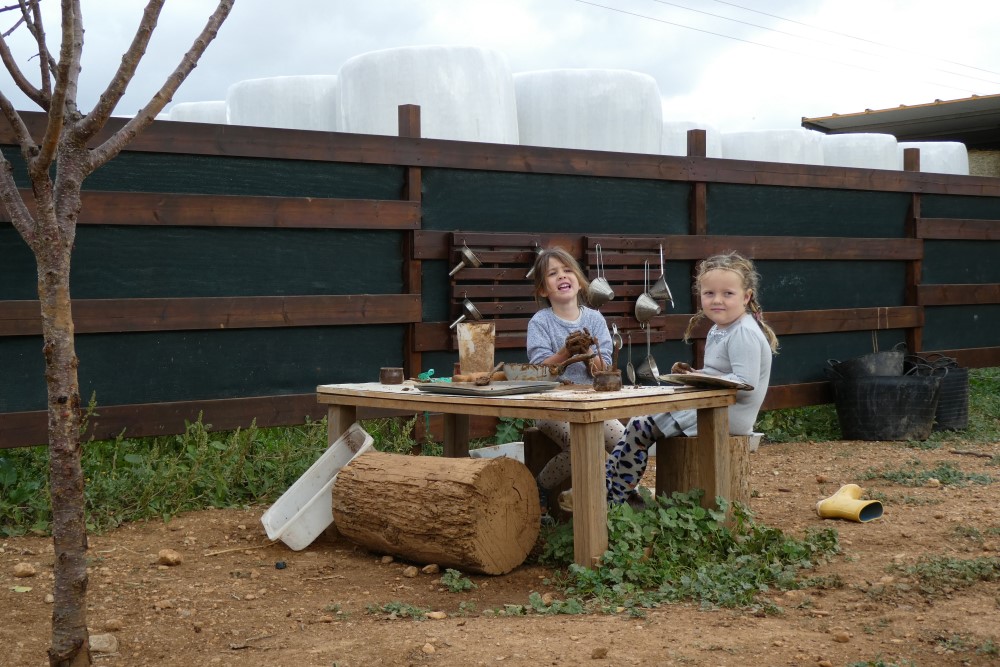
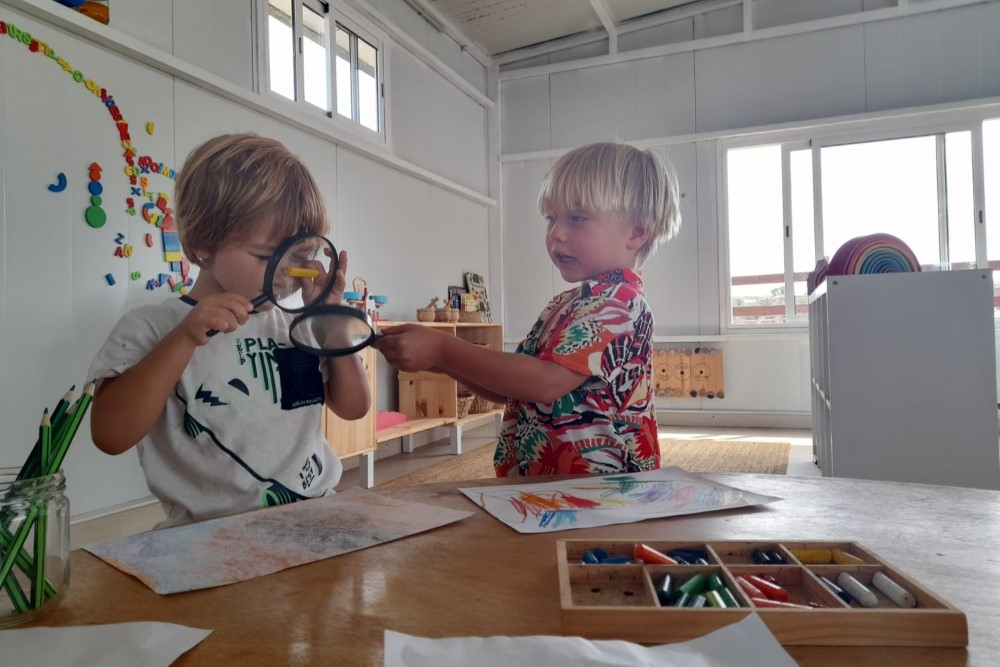
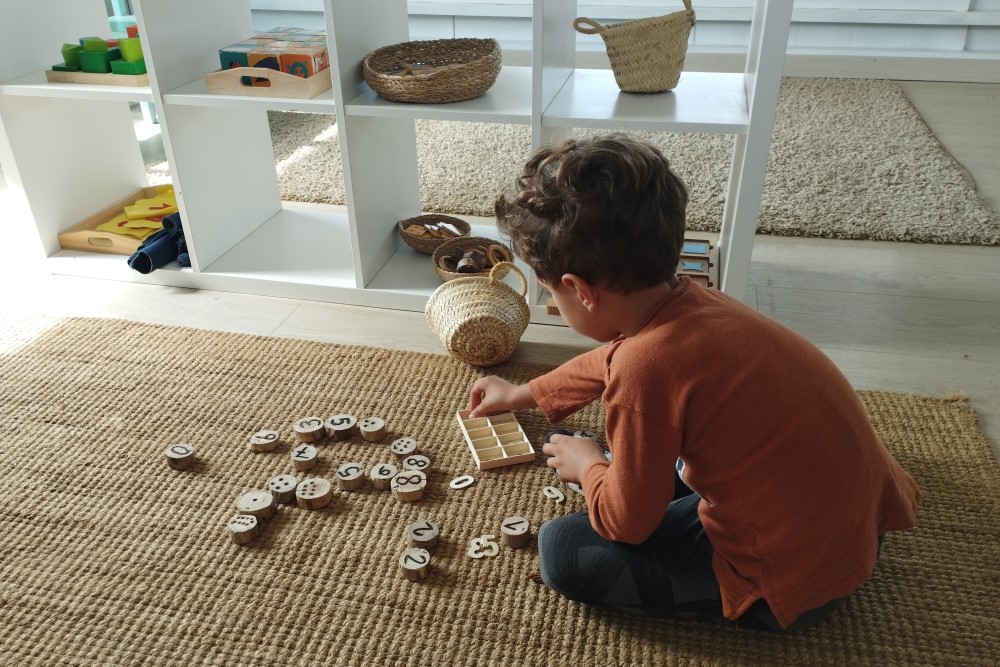
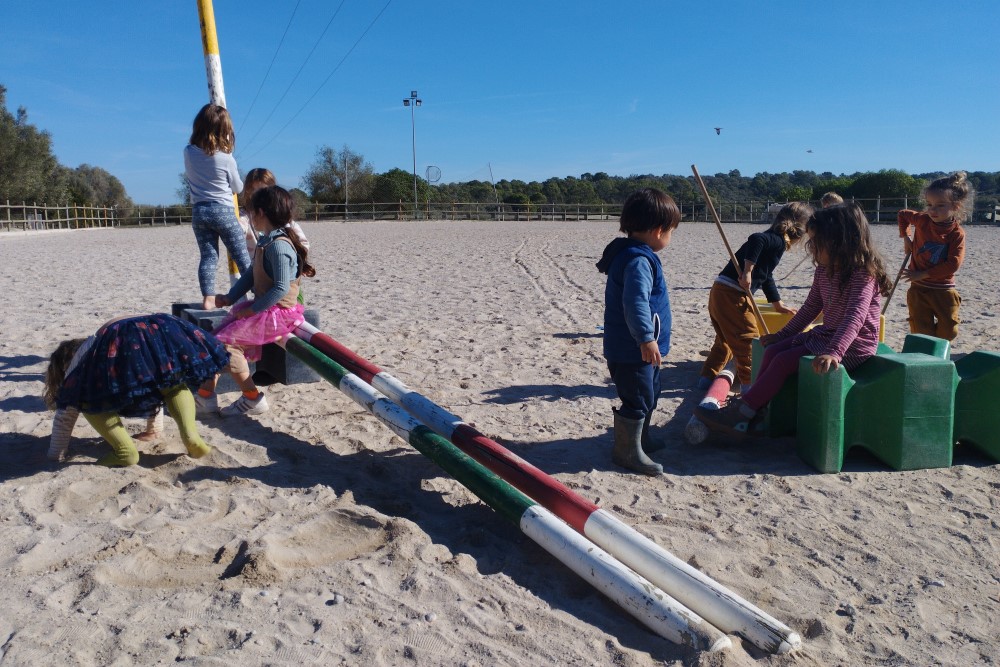
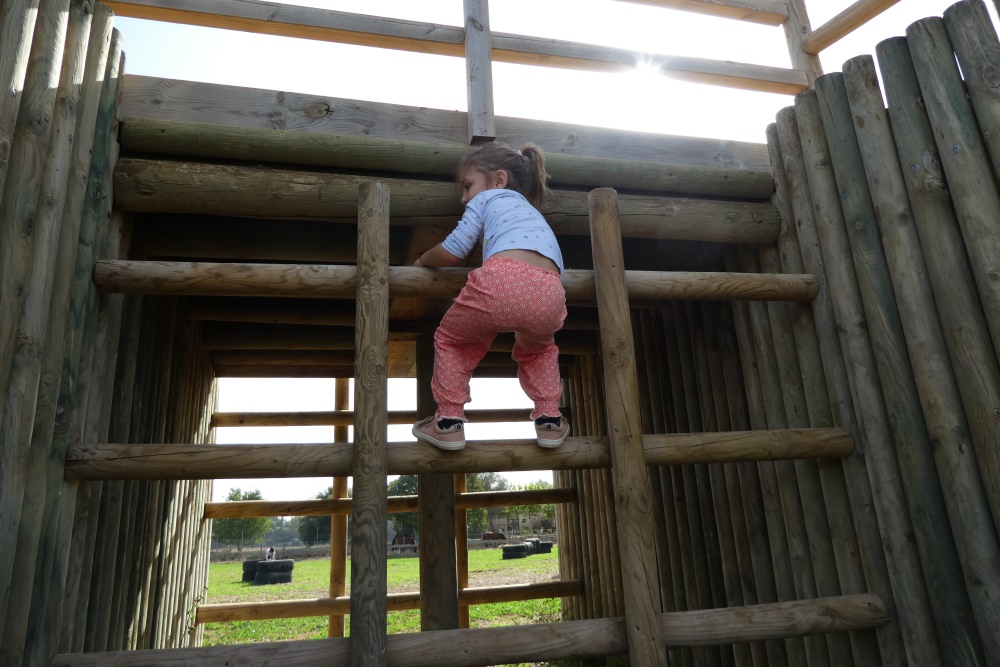
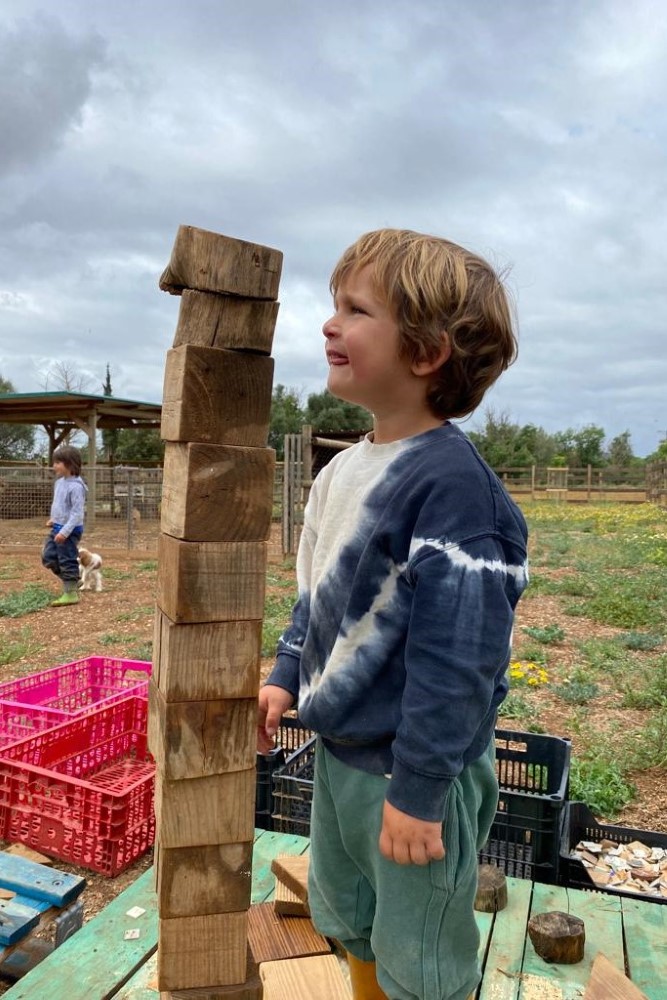
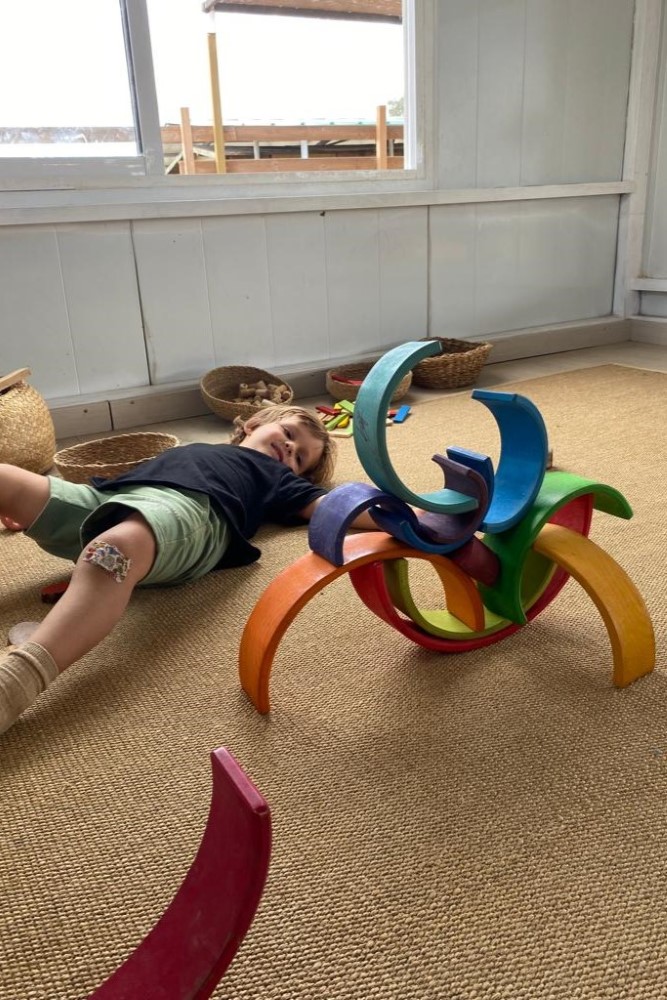
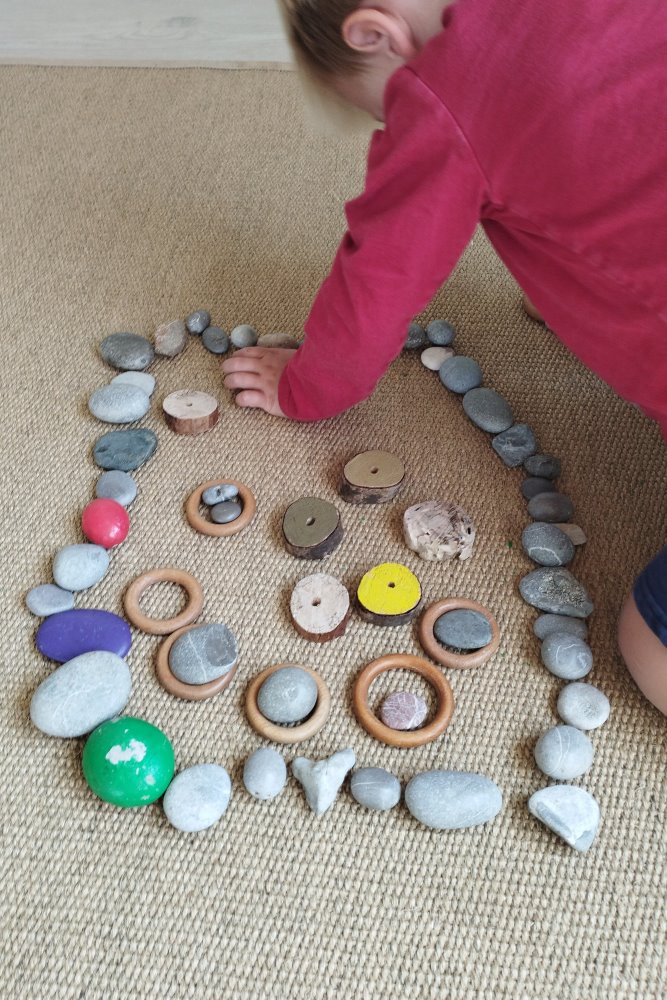
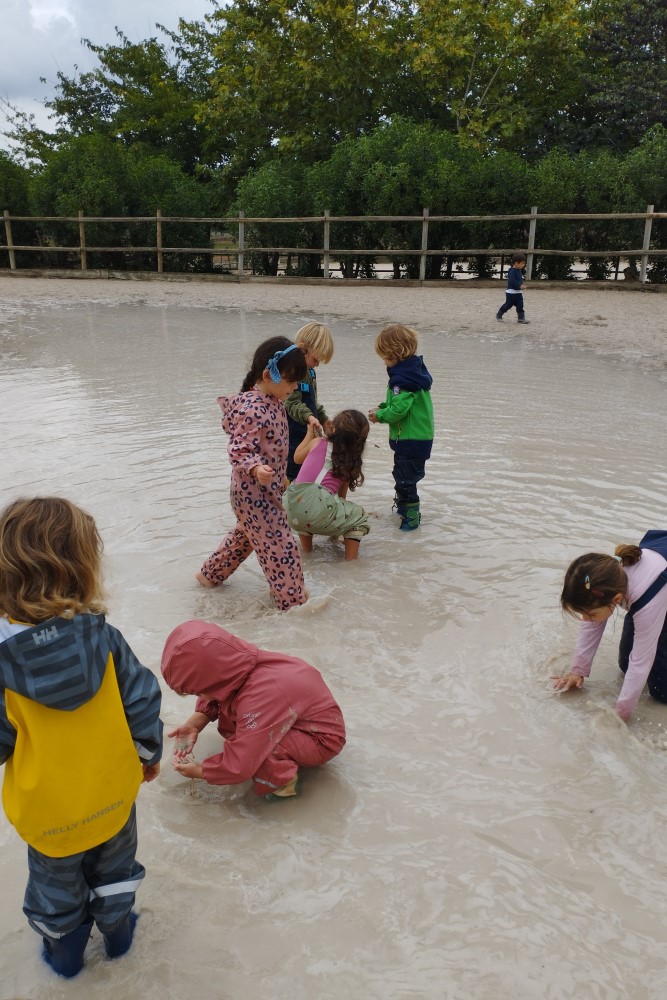
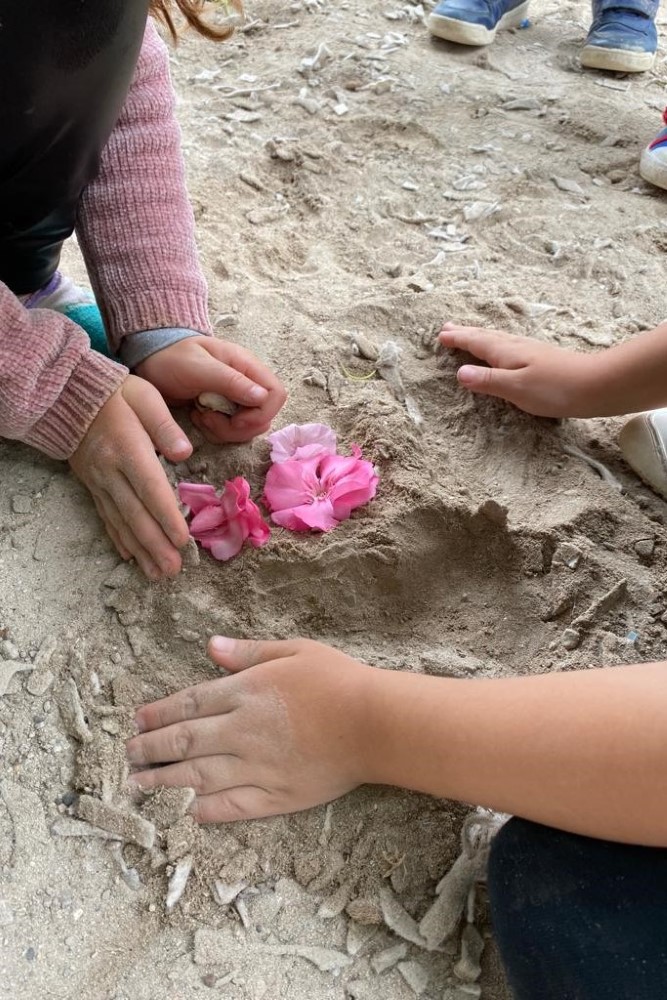
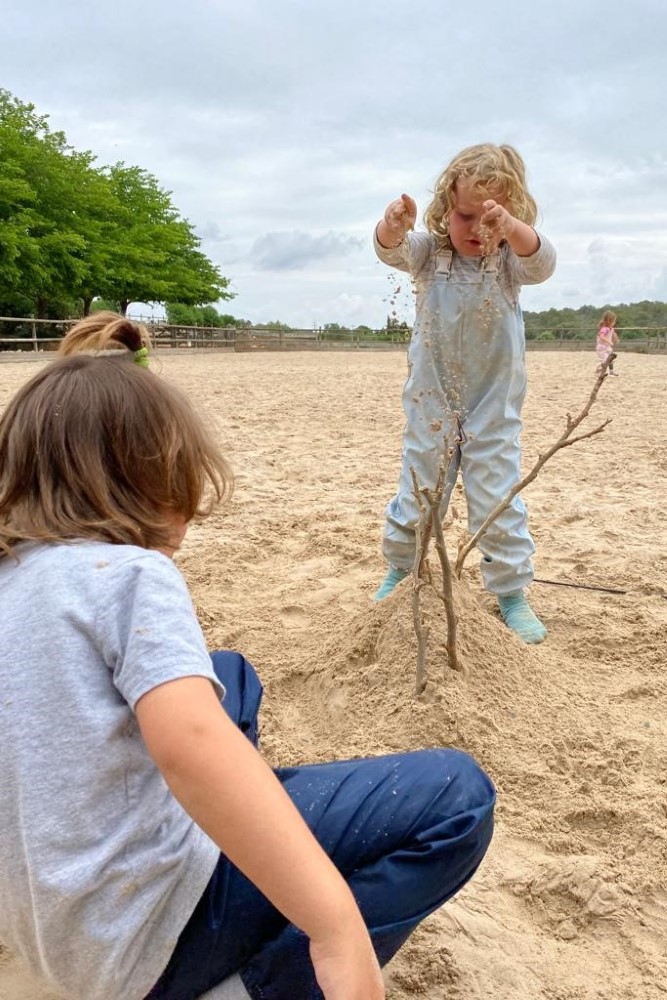
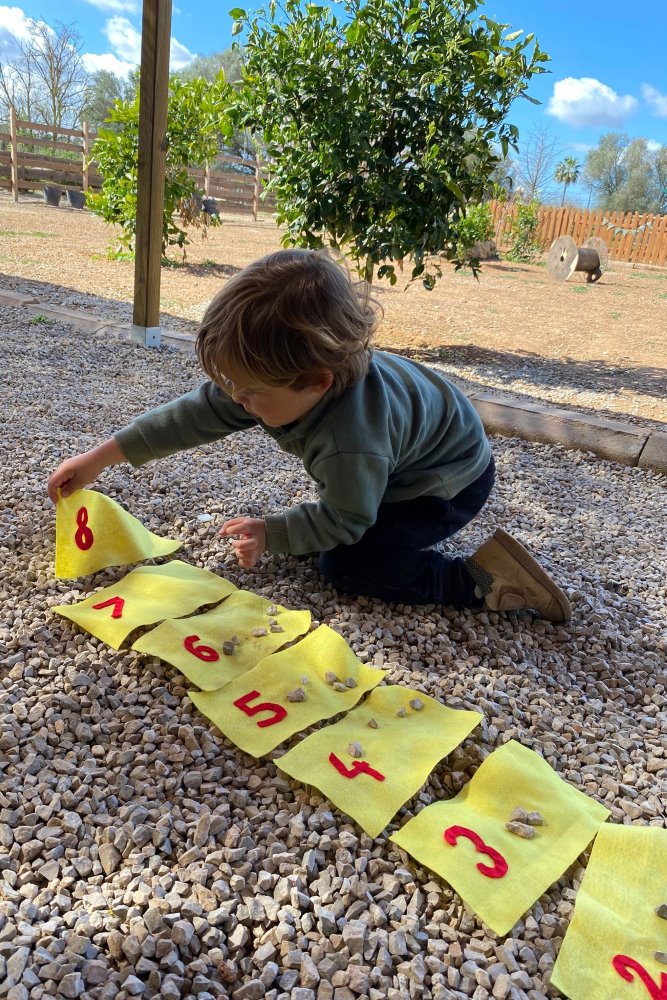
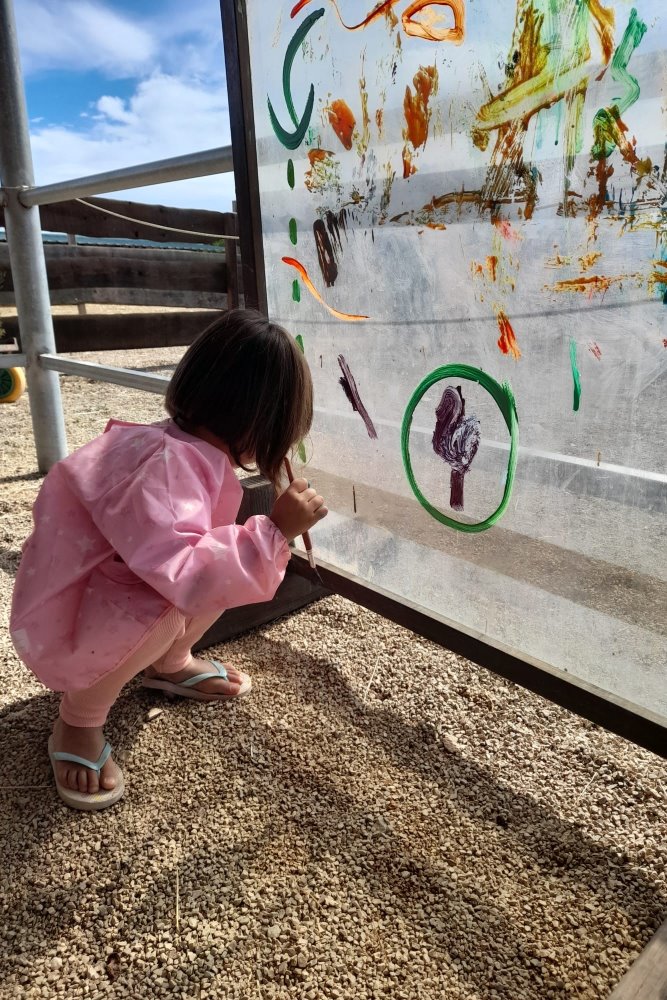
Homemade and sustainable food
Whether at mid-morning snack, lunch, or afternoon snack, we take care of the good nutrition of children and the acquisition of personal and social habits, such as chewing food well, promoting autonomy through the use of cutlery, eating sitting down, setting the table, taking care of cleaning their plate at the end among other things.
Feeding times provide us with a lot of pedagogical richness, as we work on many things through this habit. Treating these moments carefully, calmly and at a child’s pace allows us to make the most of all this value.
From 10am until lunchtime we present what we call a community snack to share the pieces of fruit and nuts that each family has brought to school with the children and their companions. The snacks are fruit and nuts only and are in the room, available throughout the morning so that the children, as they get hungry, they can come and satisfy their hunger.
At approximately 12.30h, the Els Molins nursery school, which has its own dining room and cook, brings lunch to the school every day. It is a menu based on local, km 0, organic and seasonal food, because we want to offer the healthiest and most nutritious food possible. The menu is adapted to the nutritional needs of children from 3 to 6 years old and to possible allergies and intolerances that may arise.
